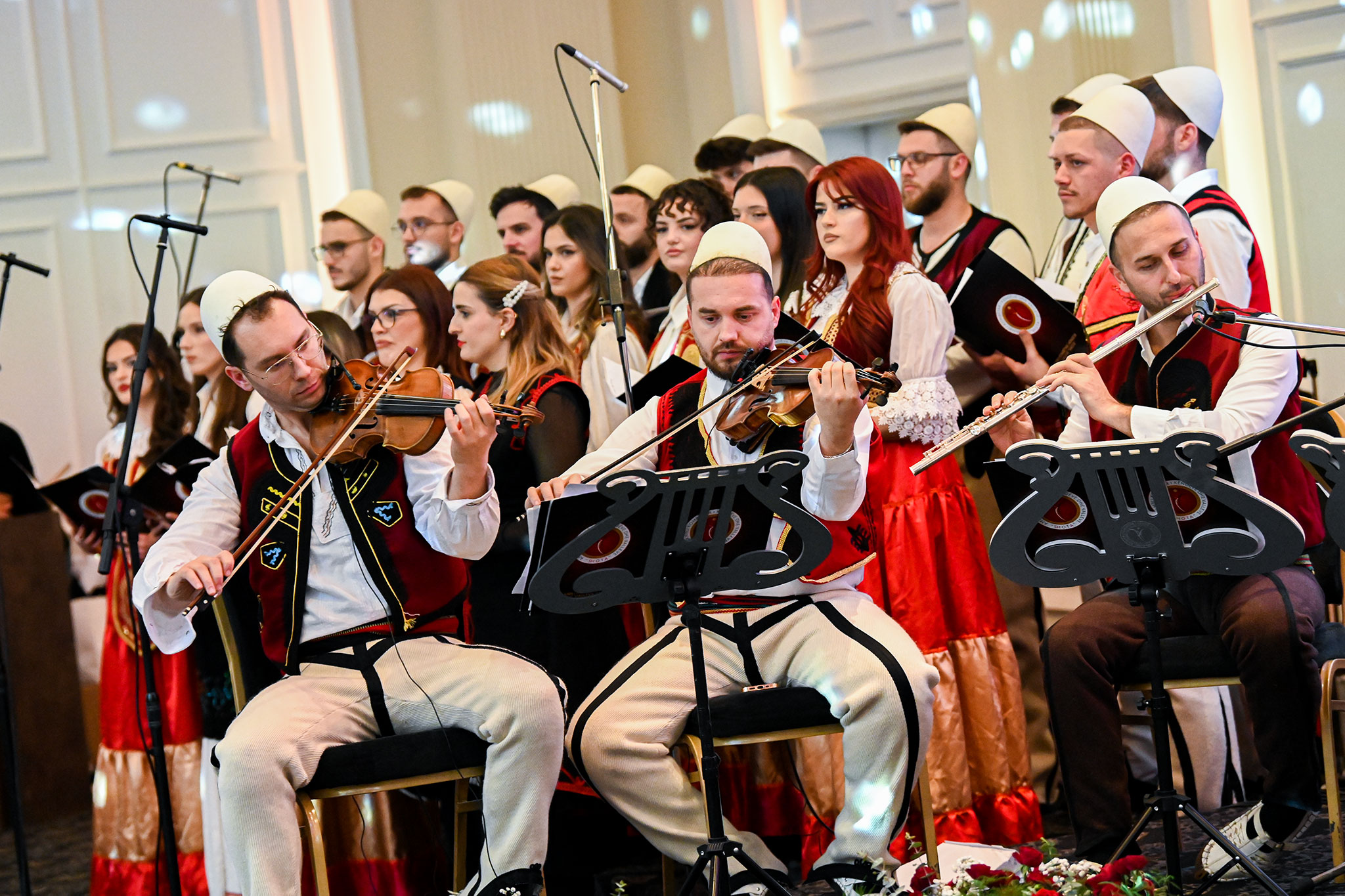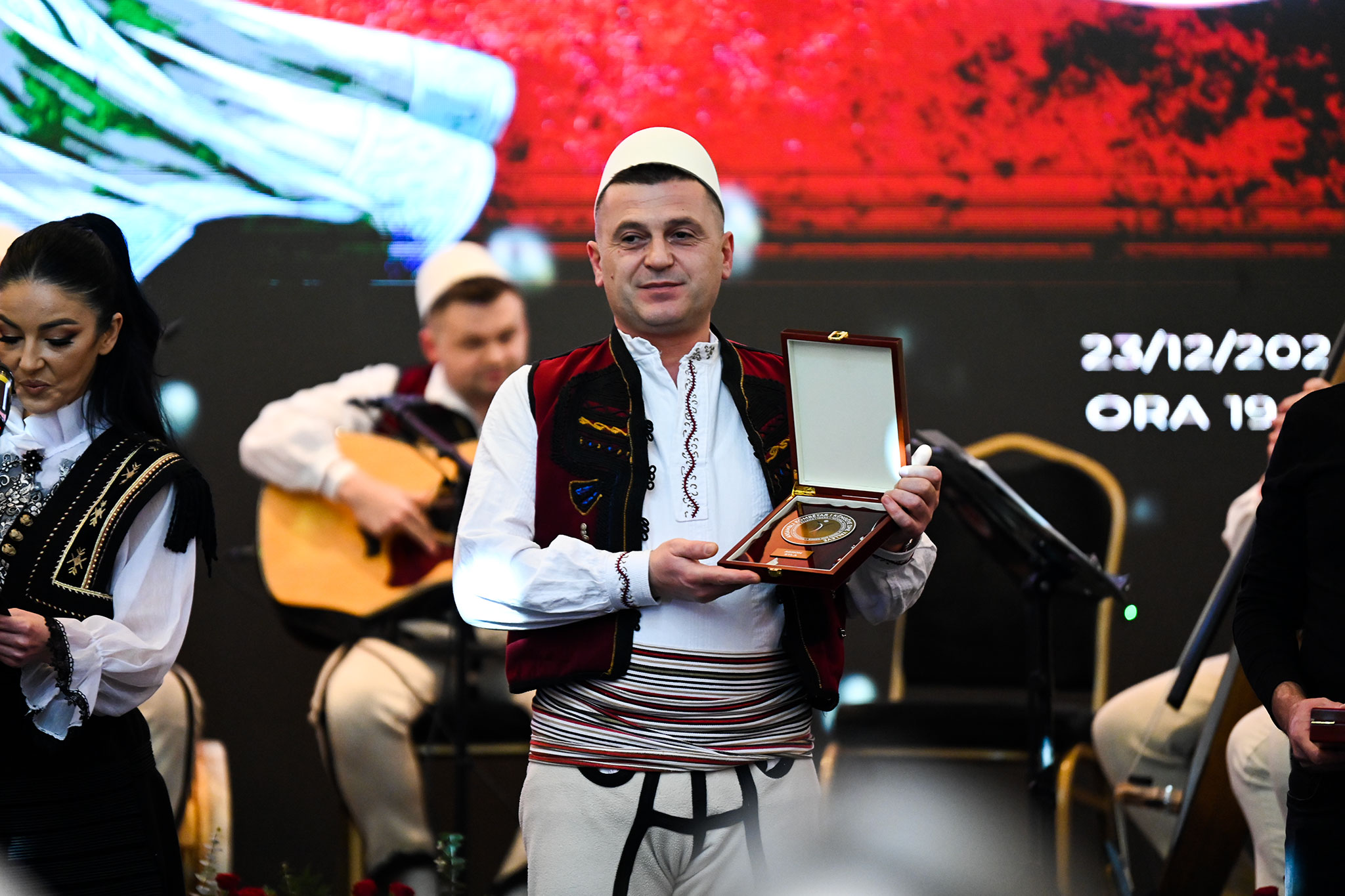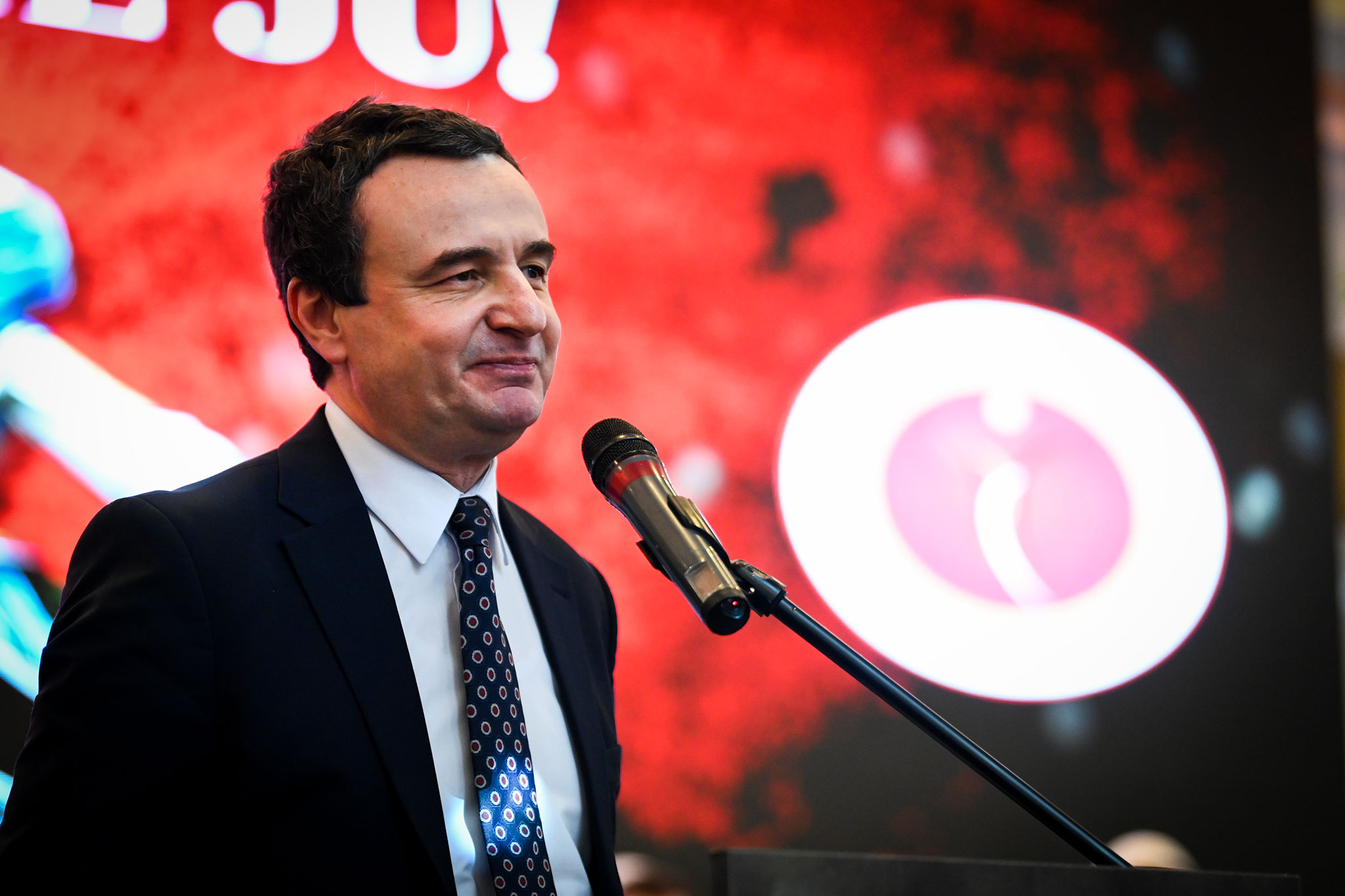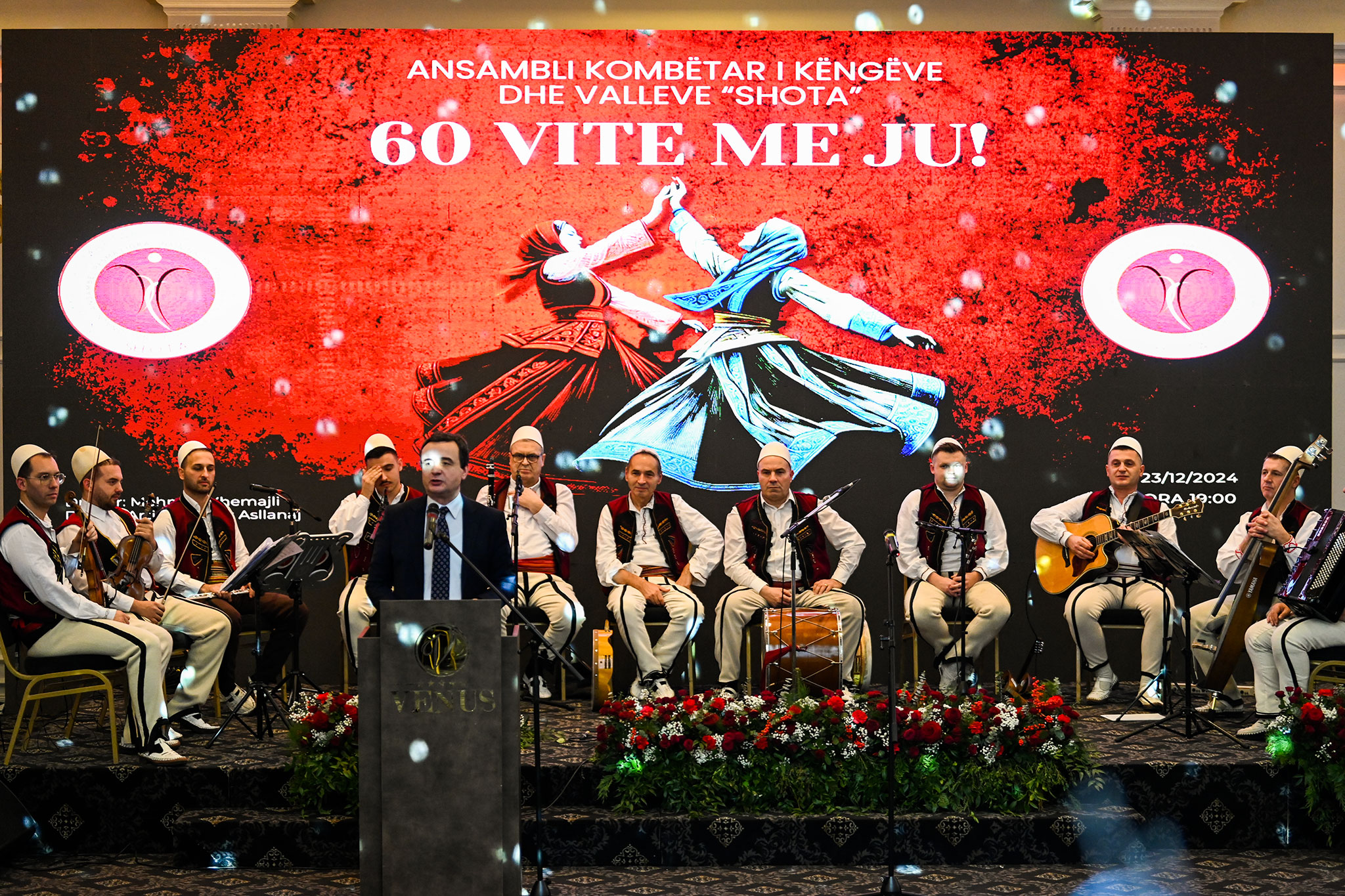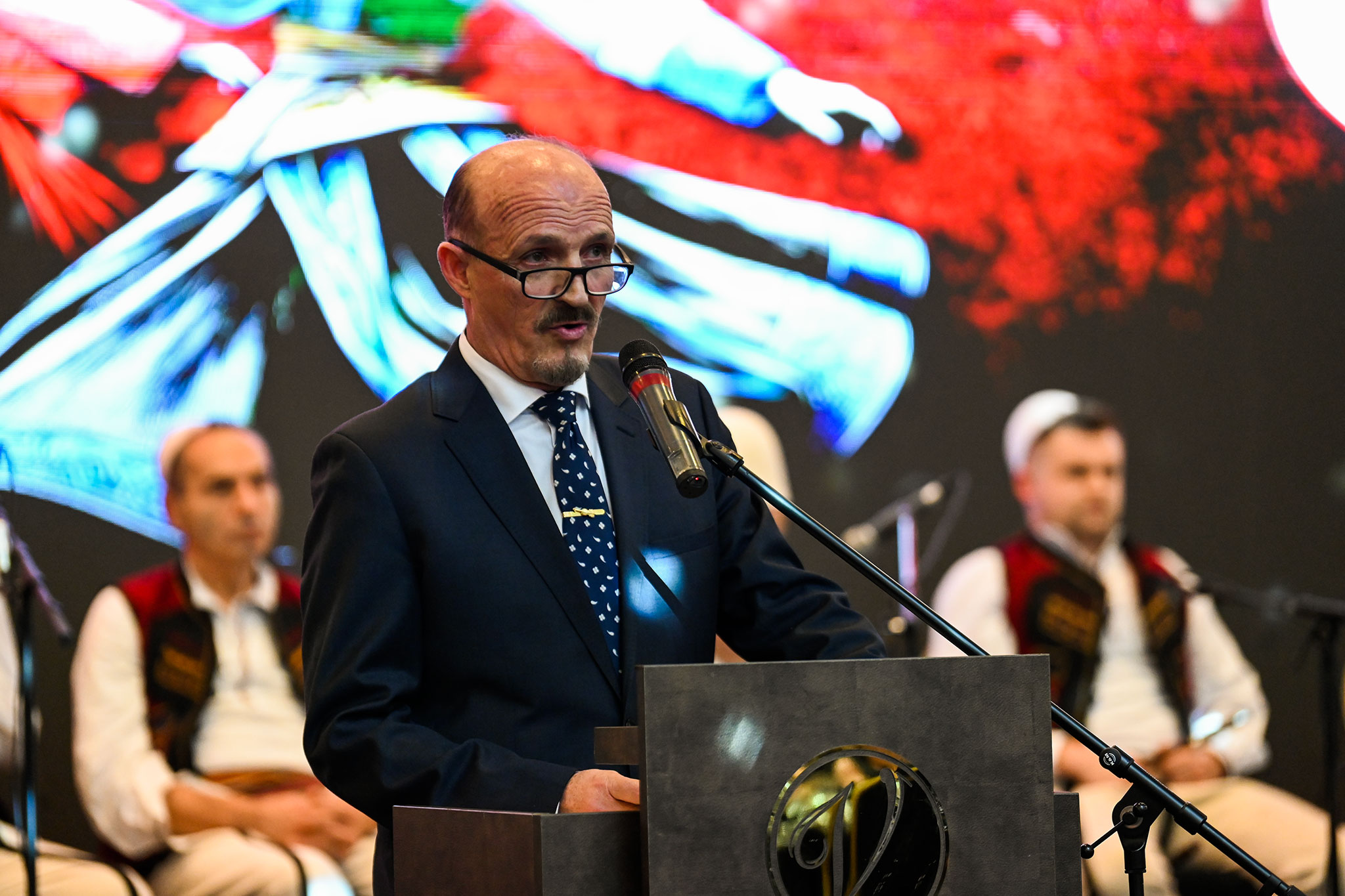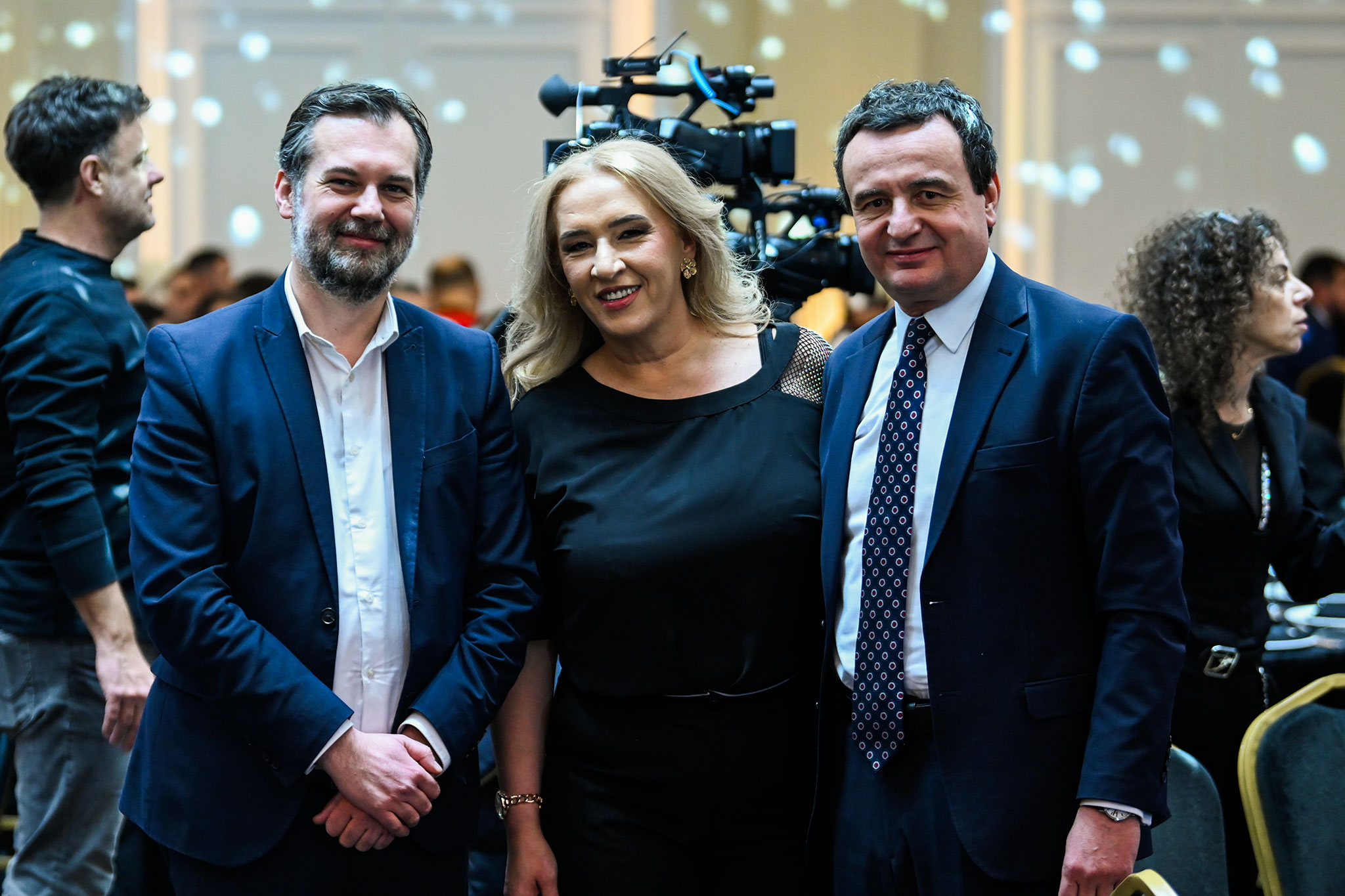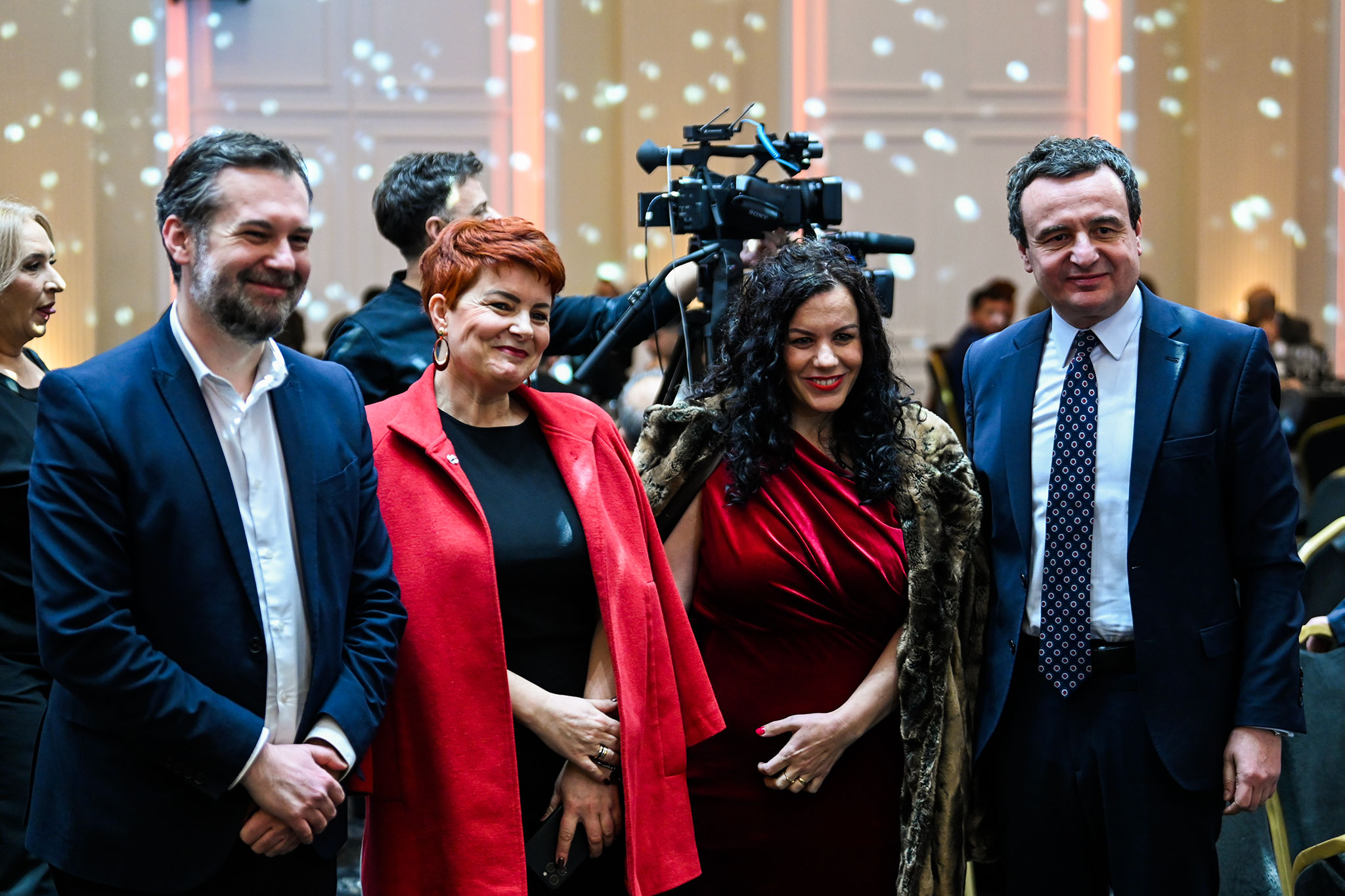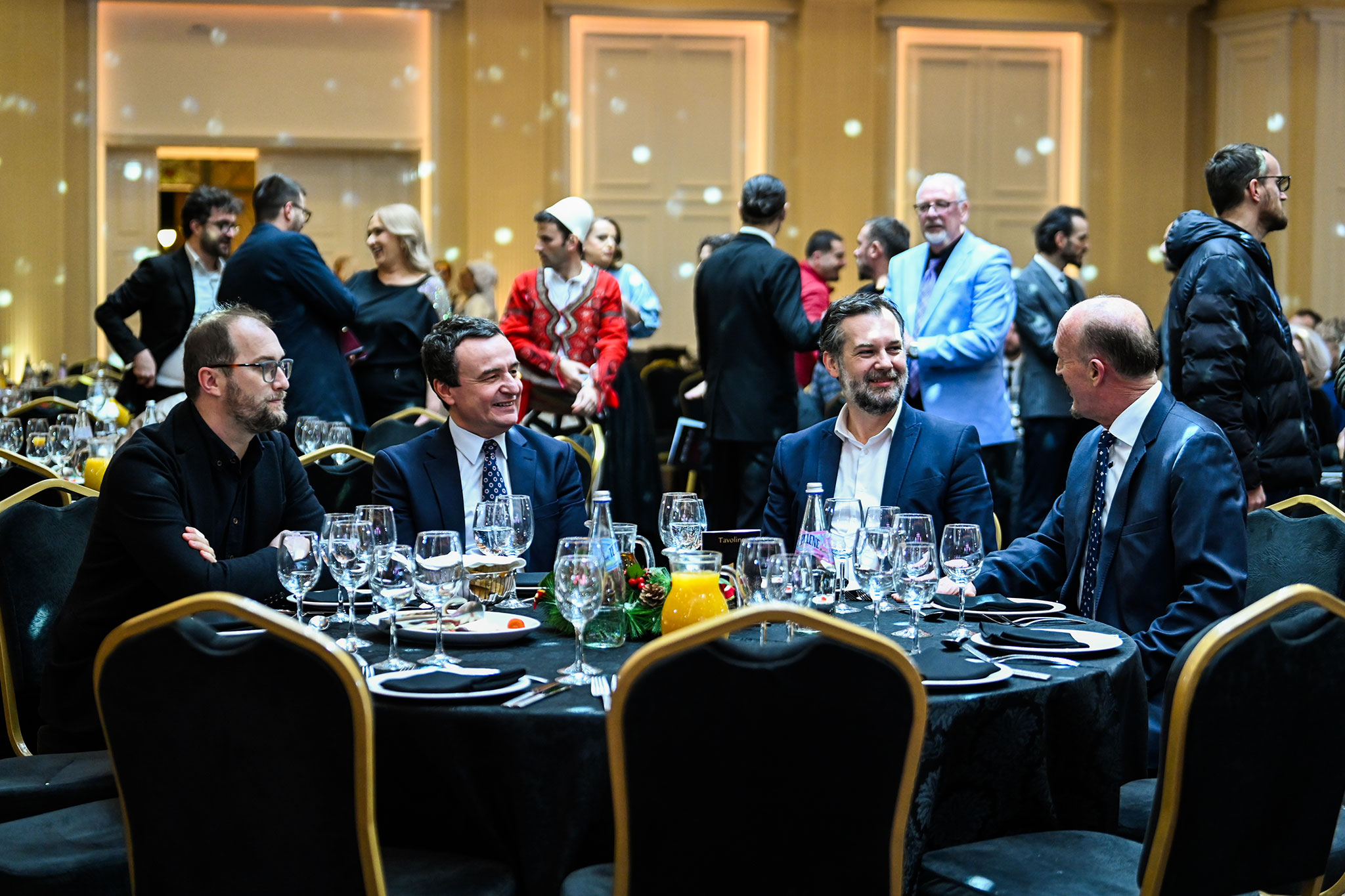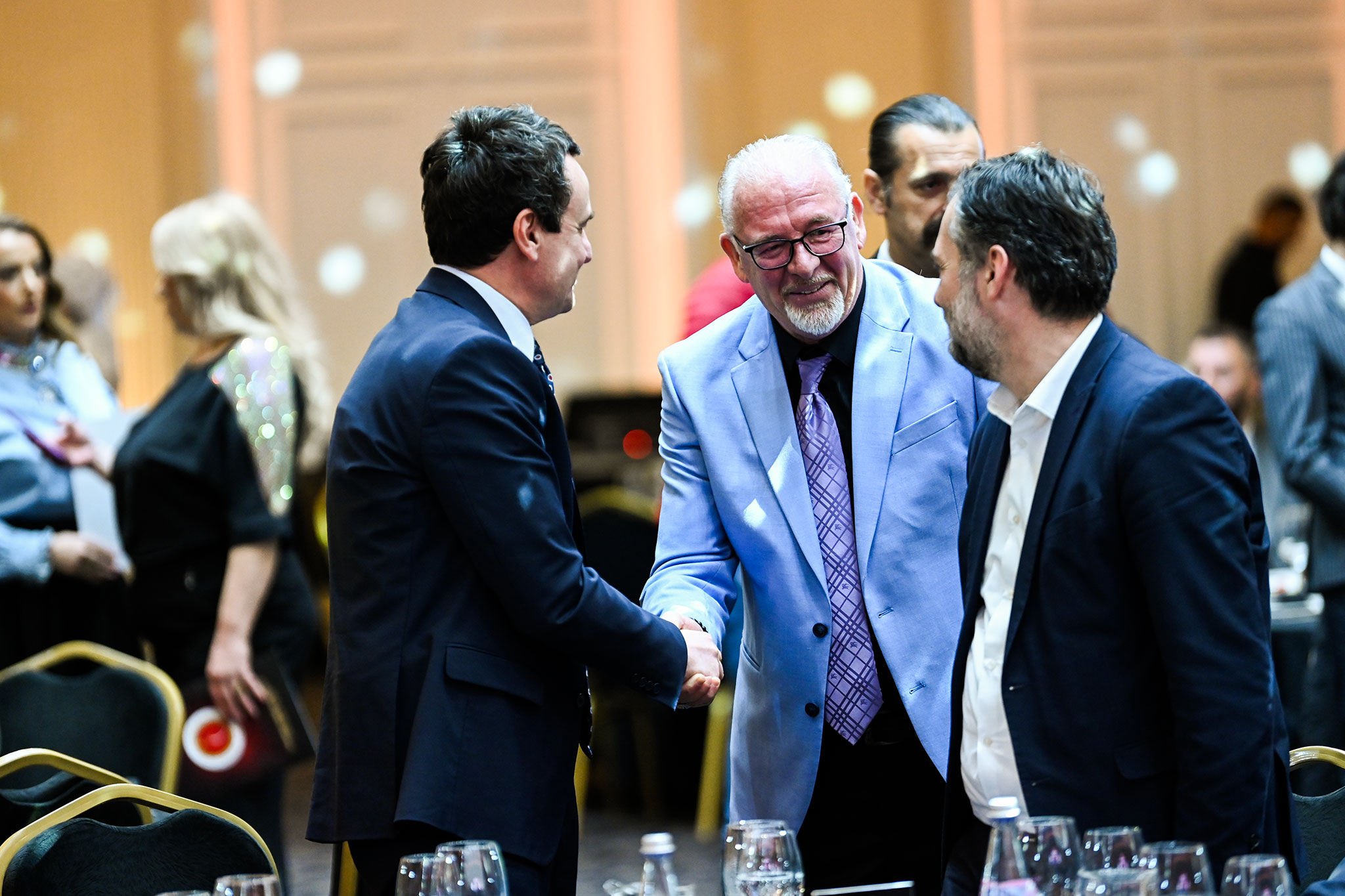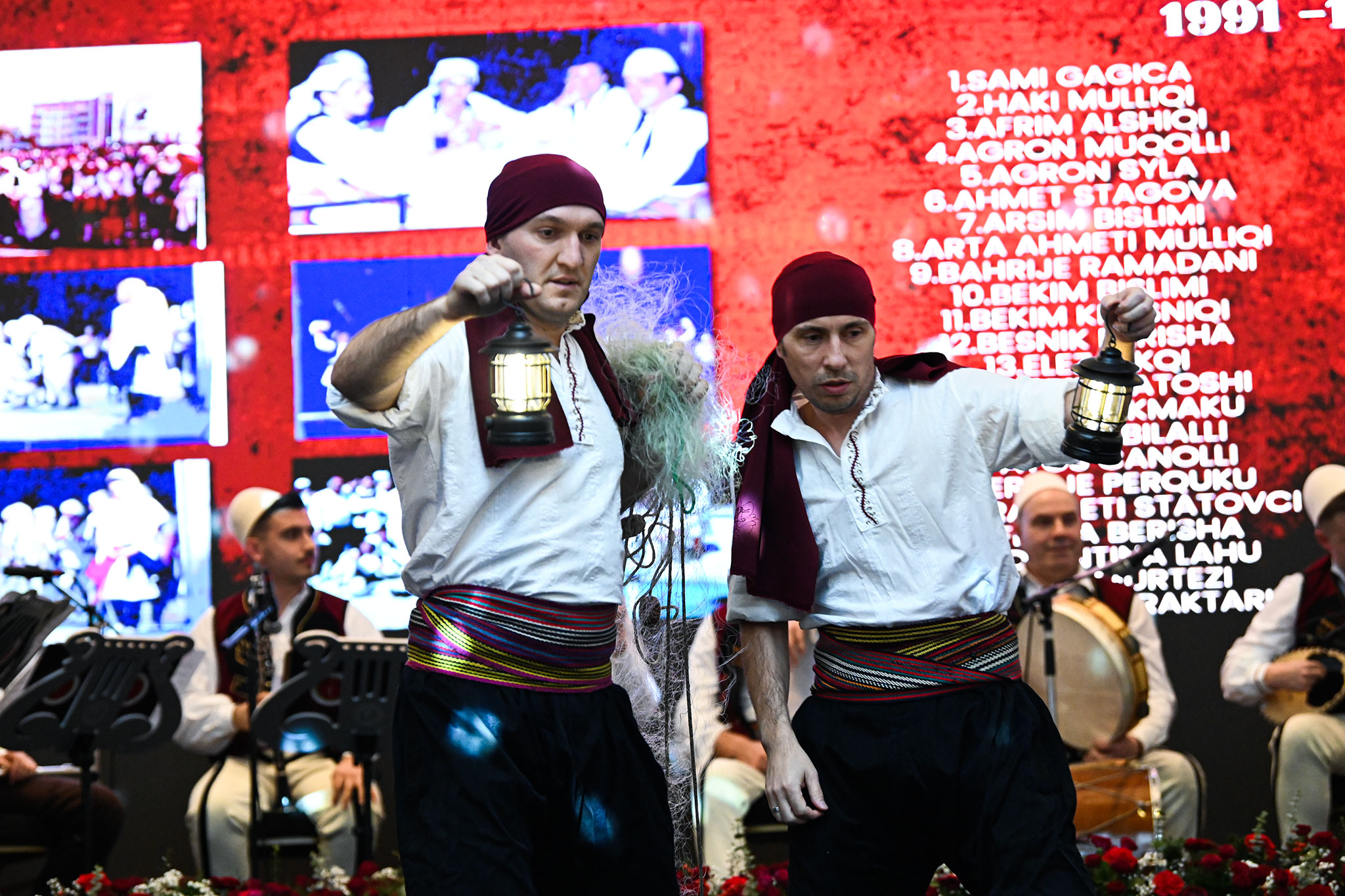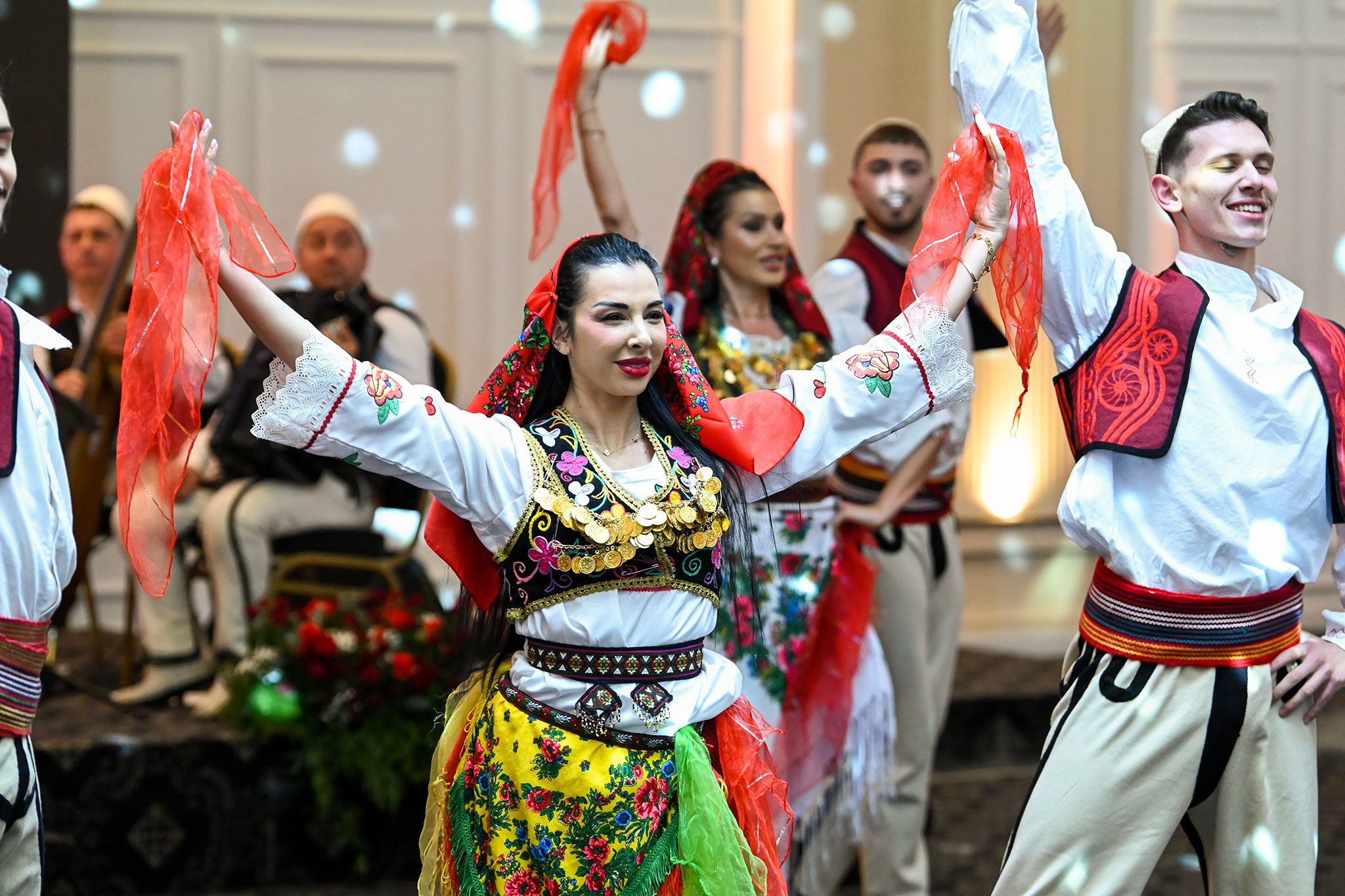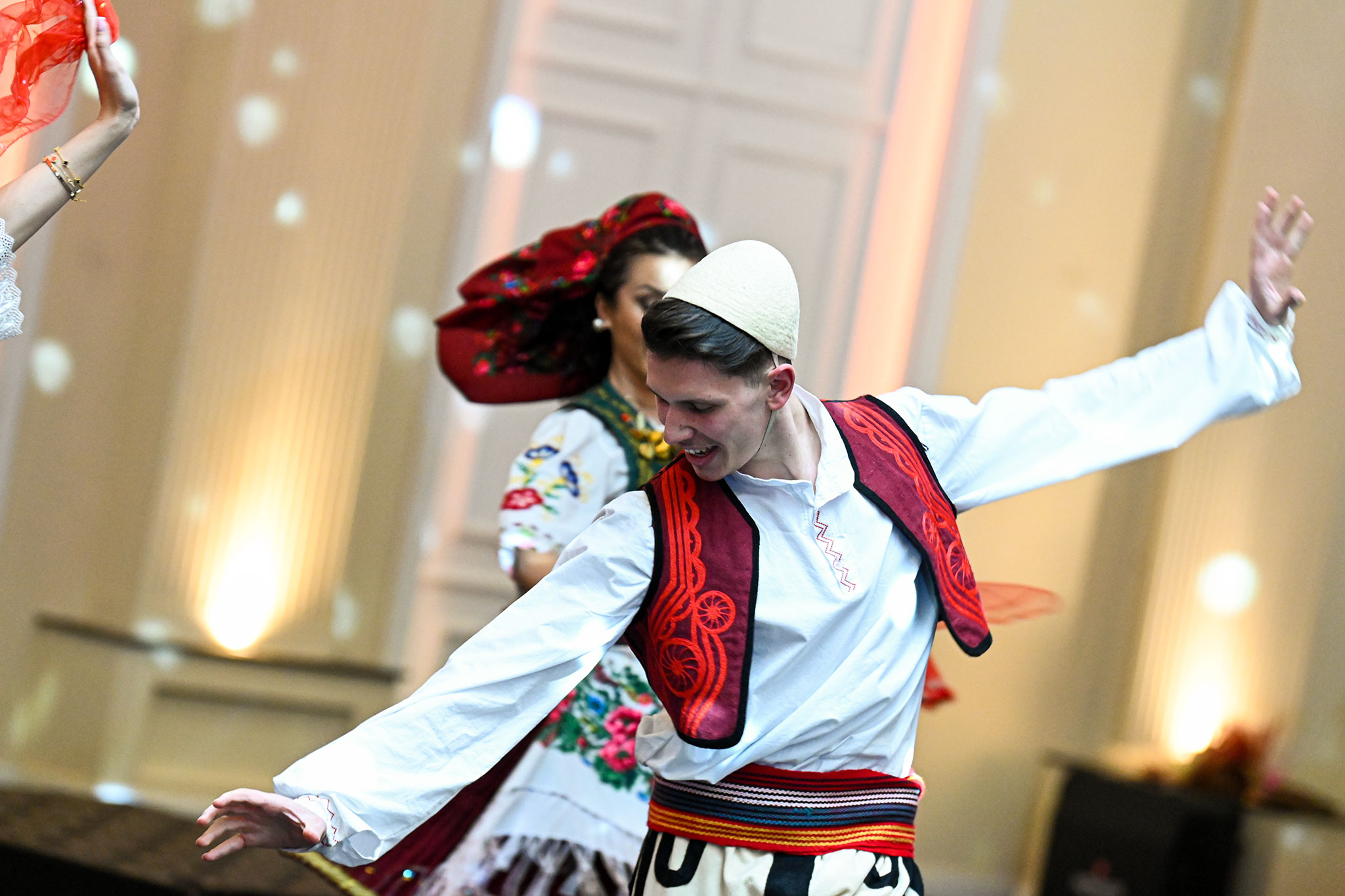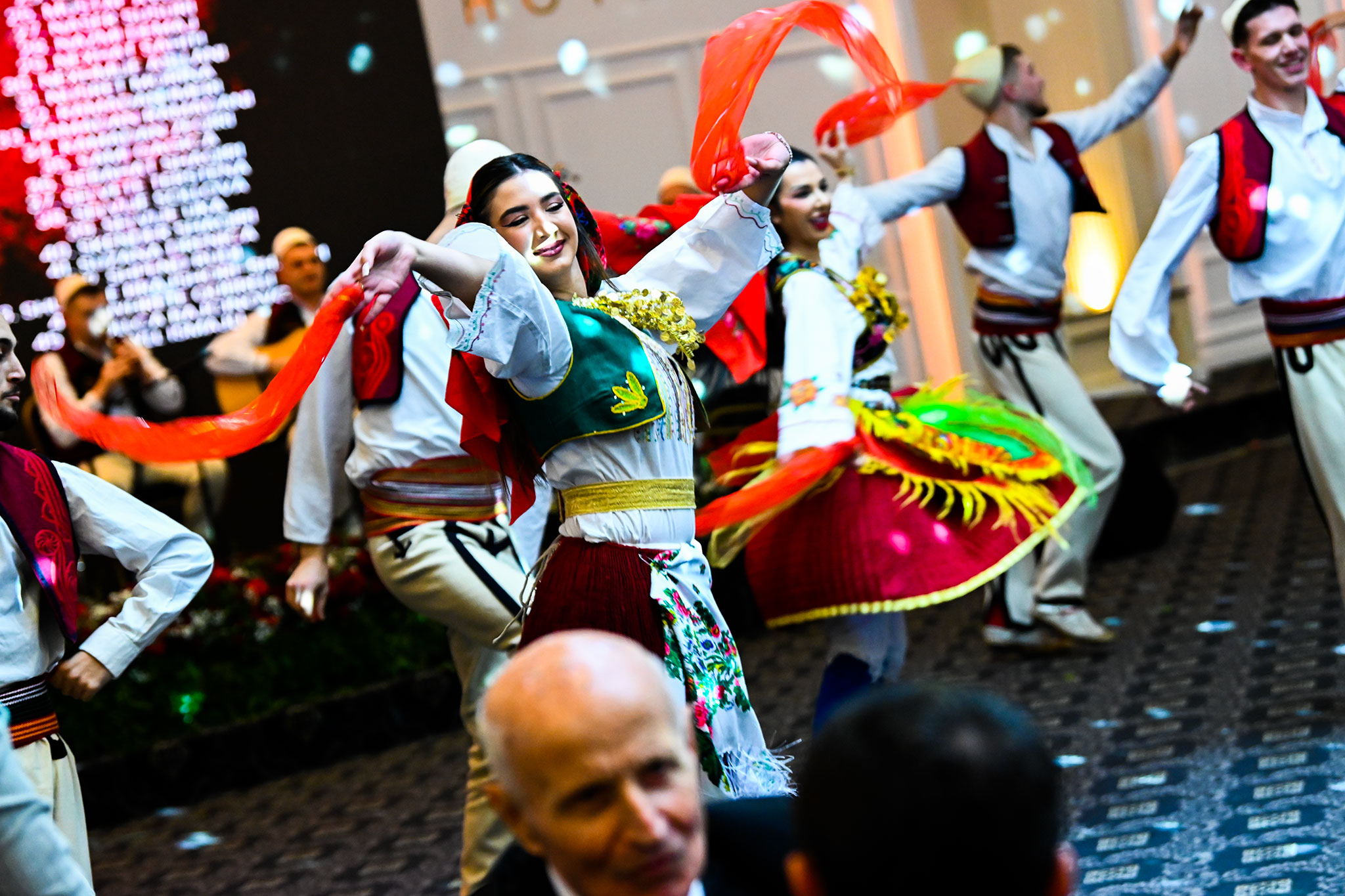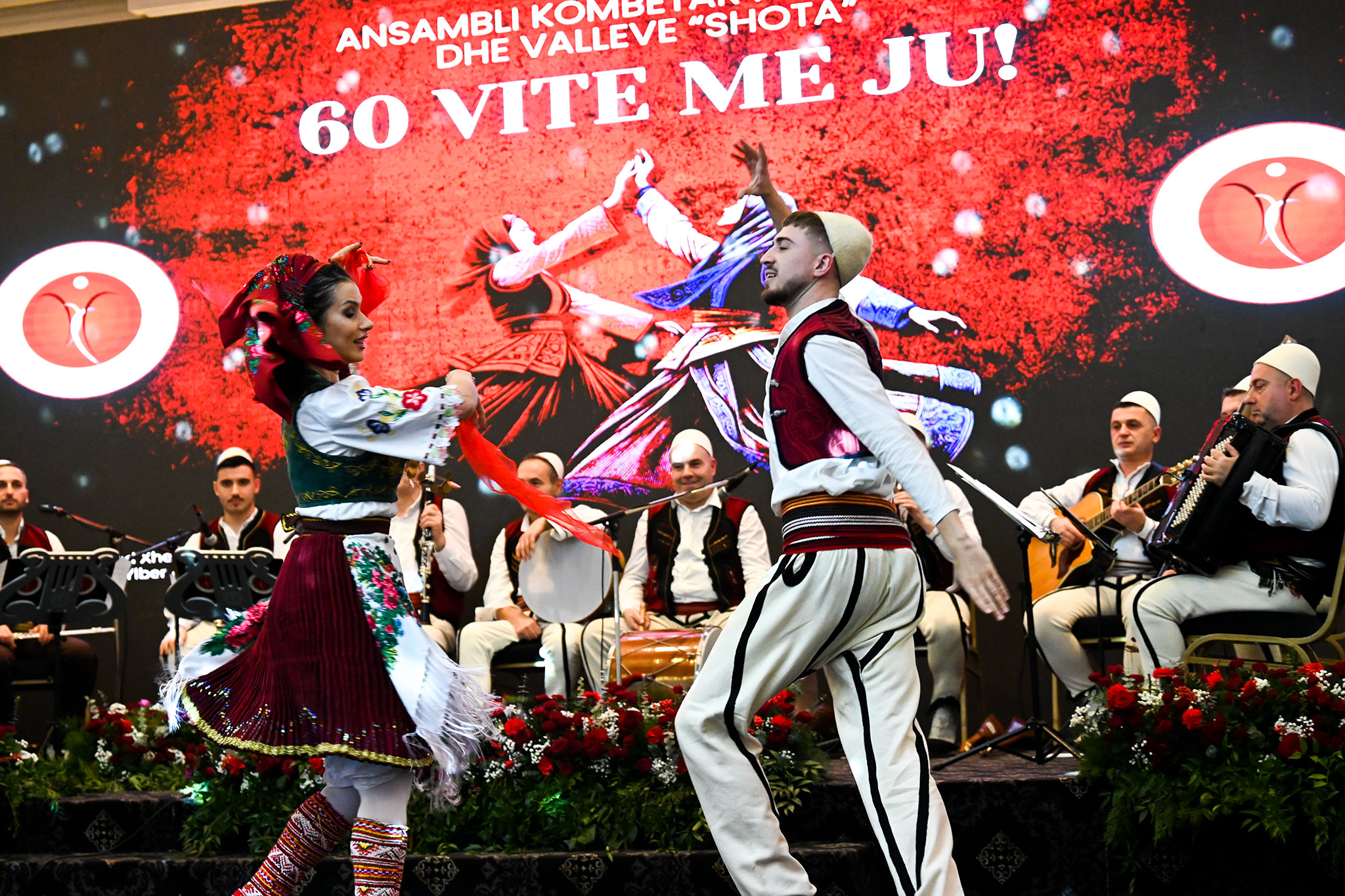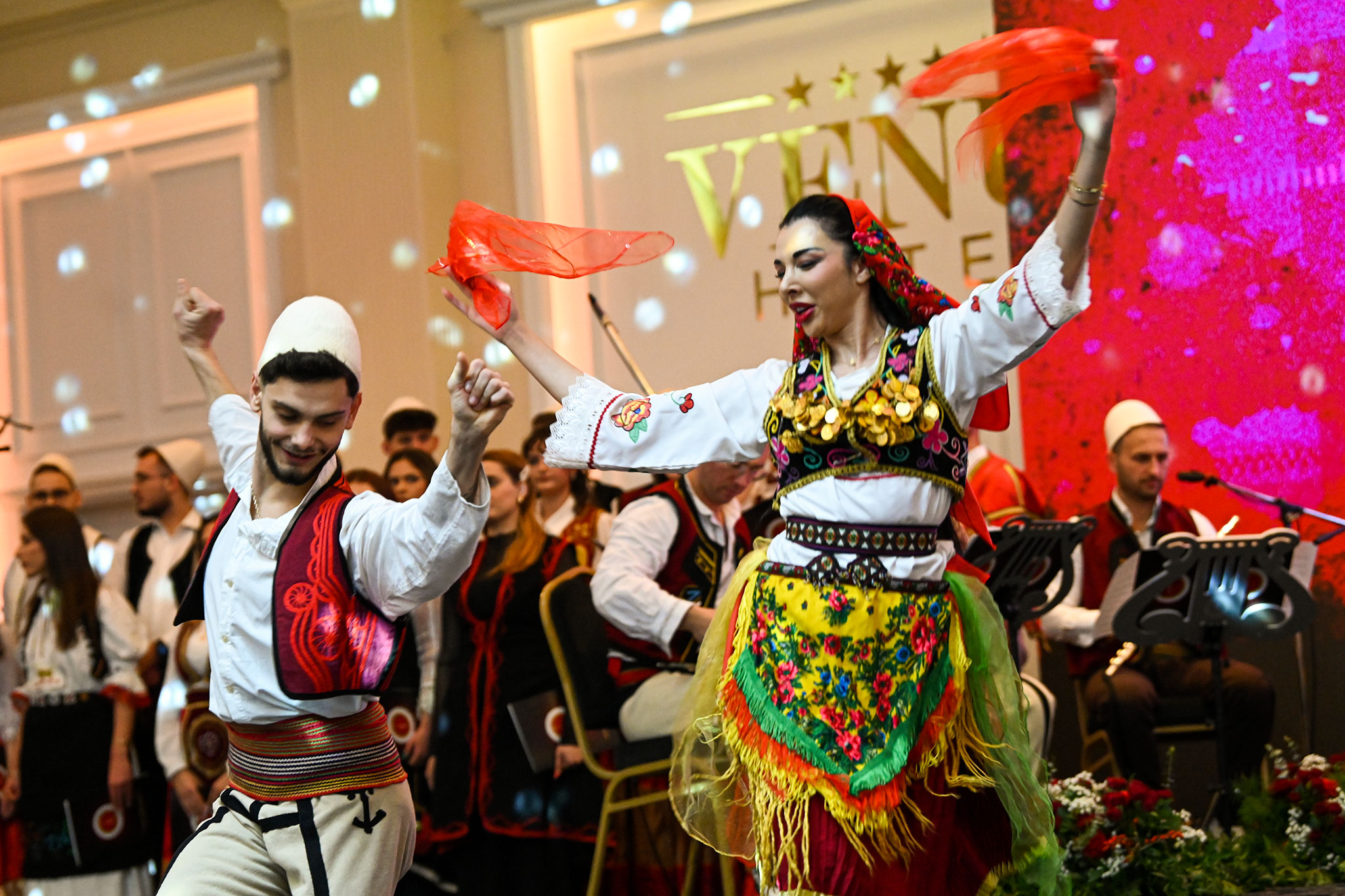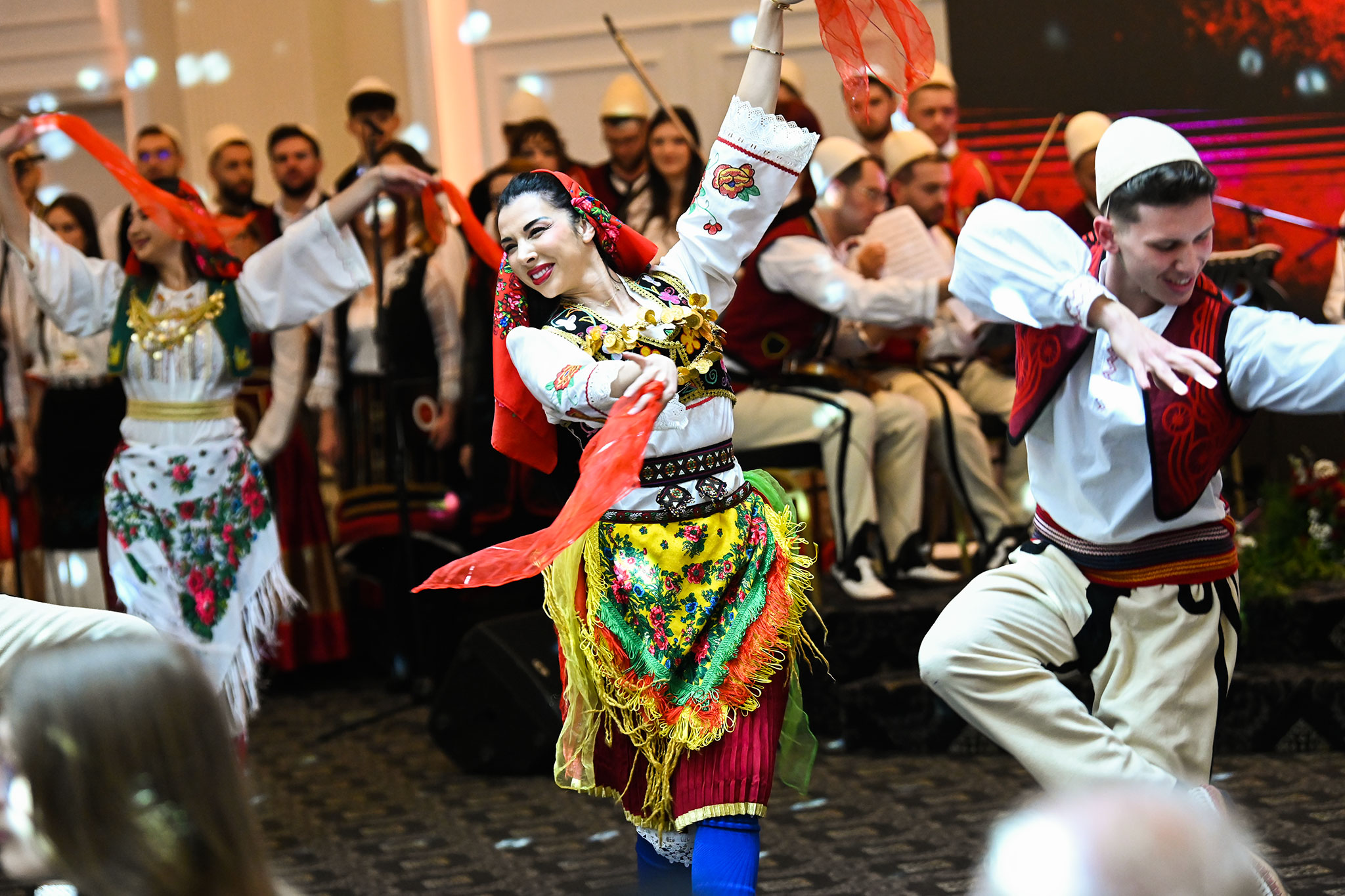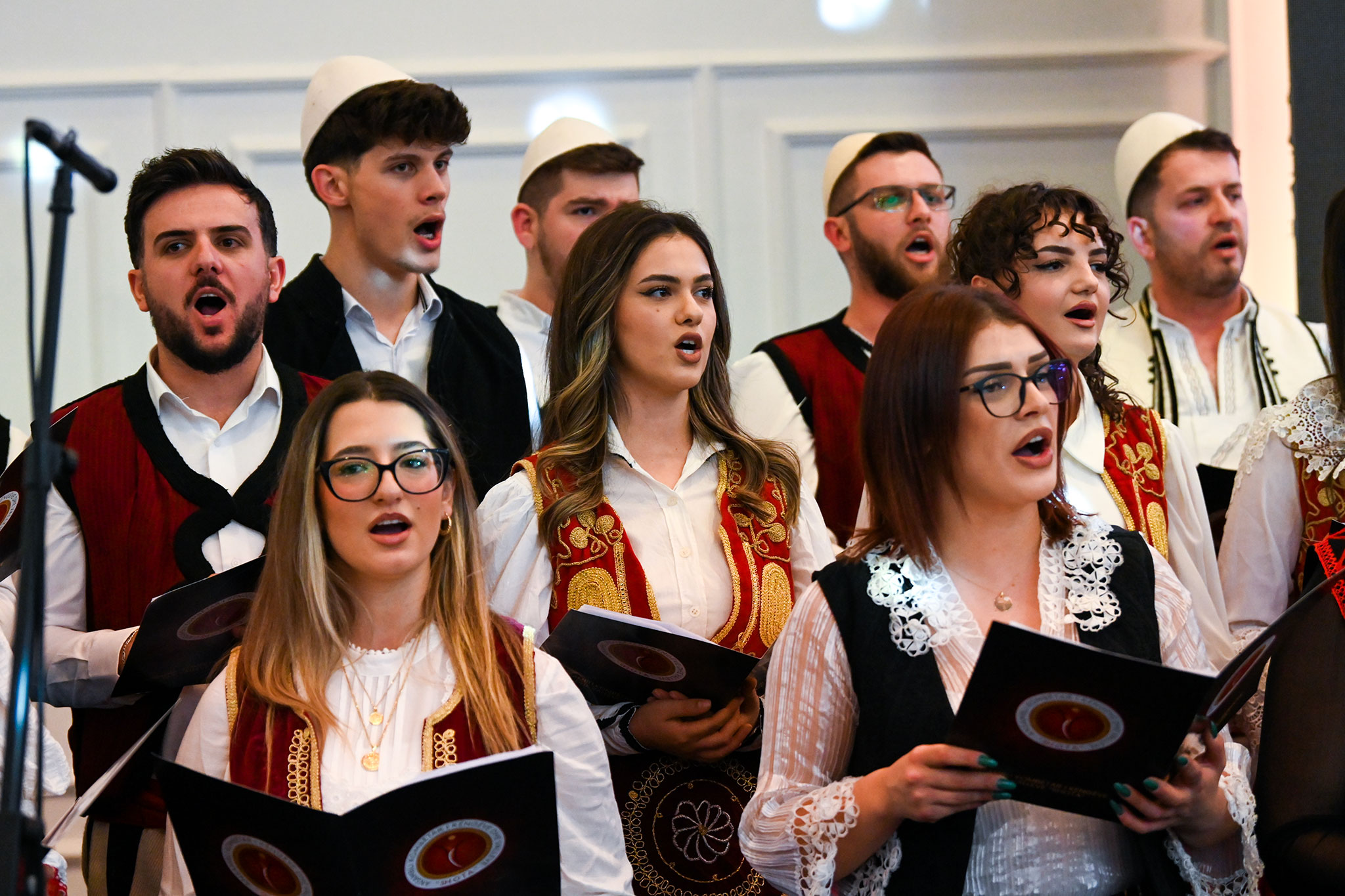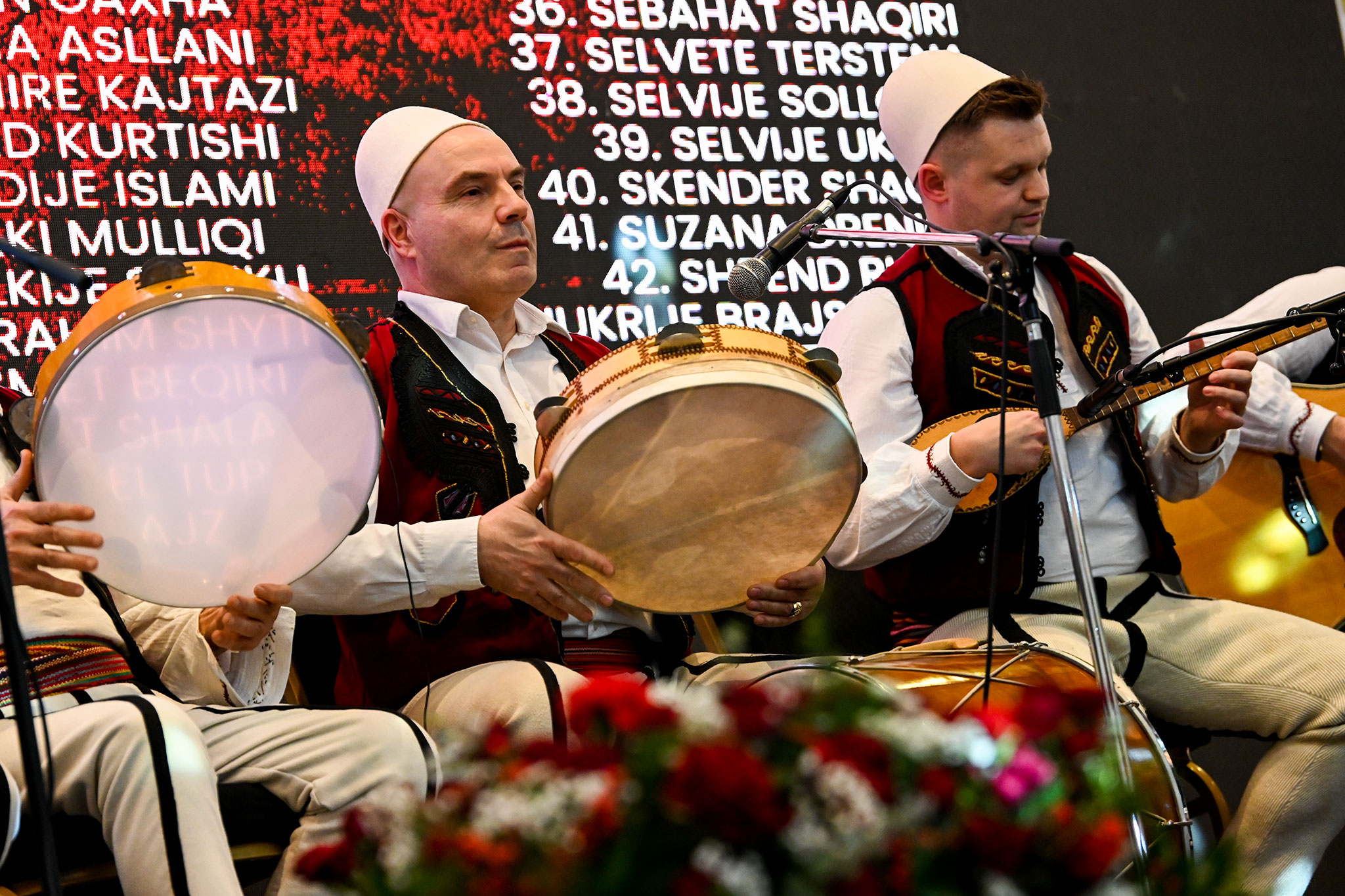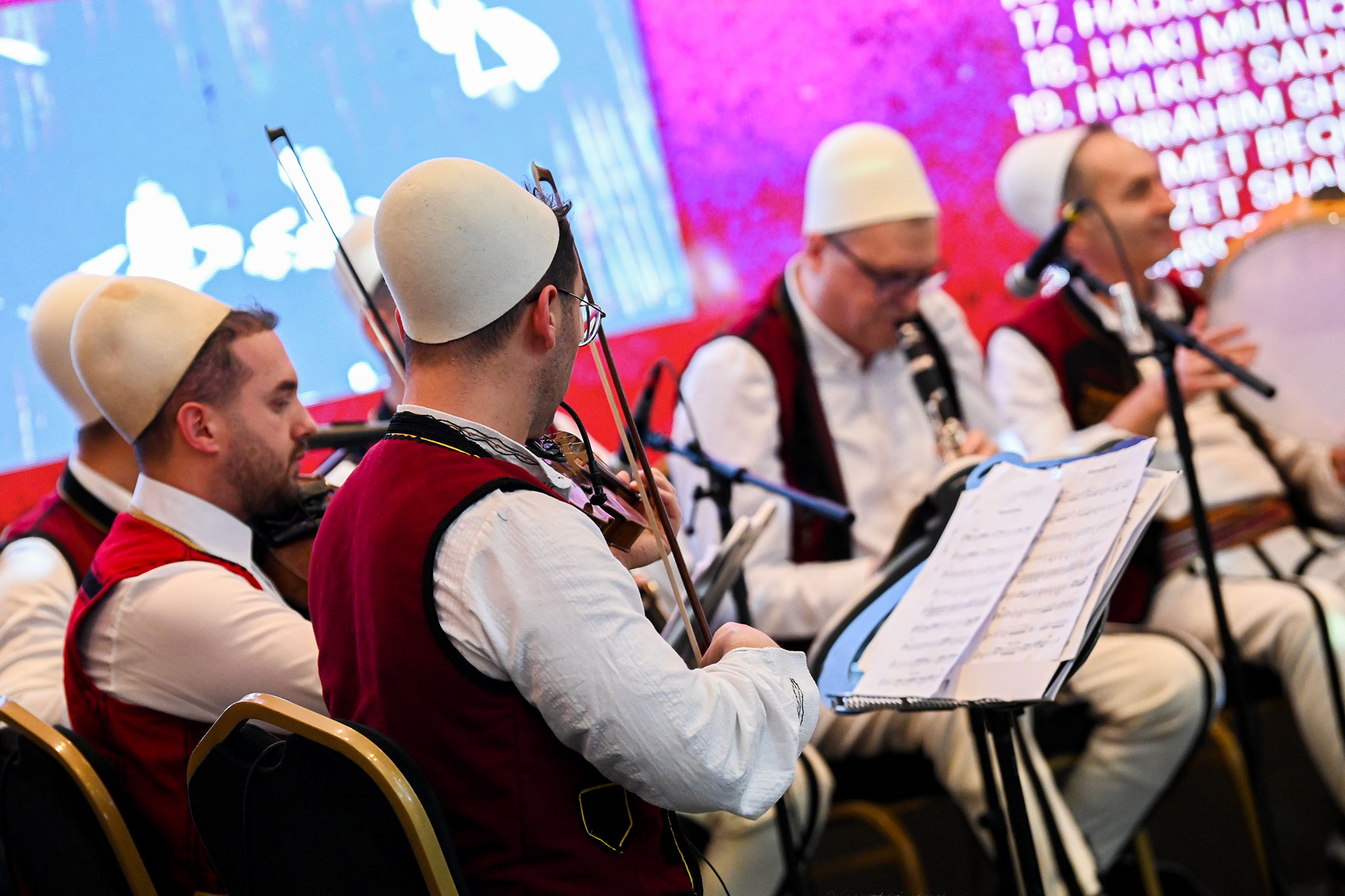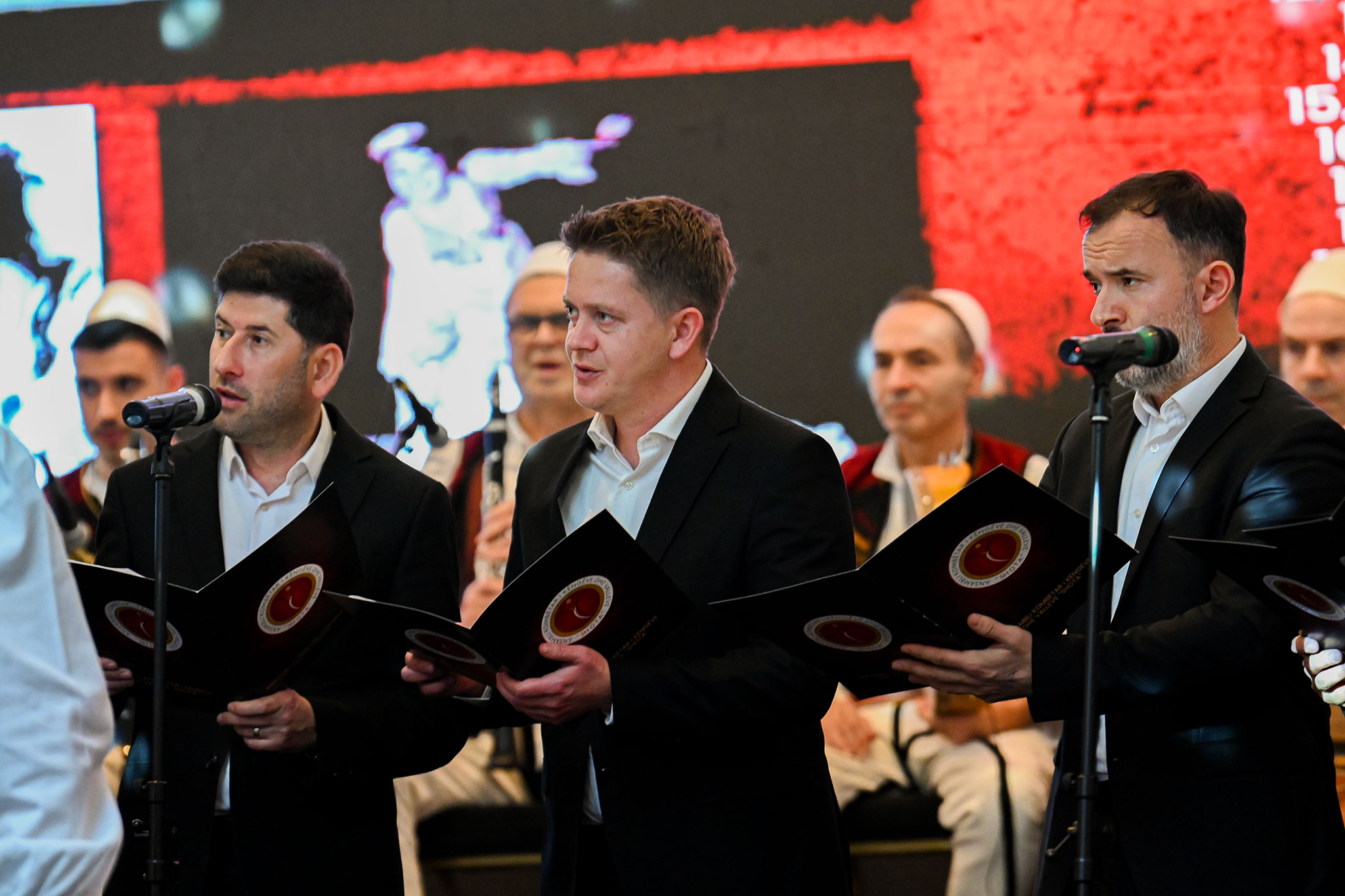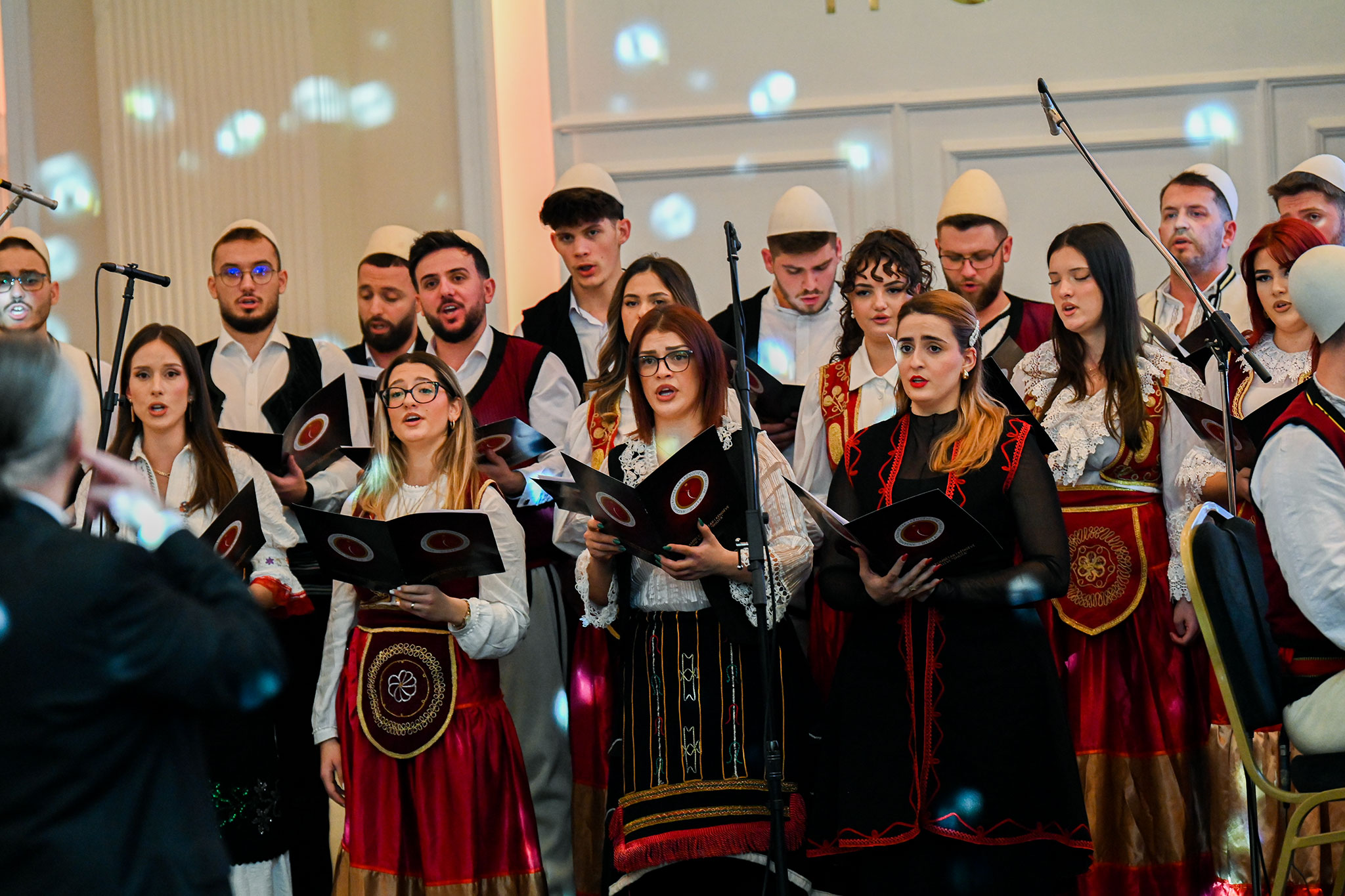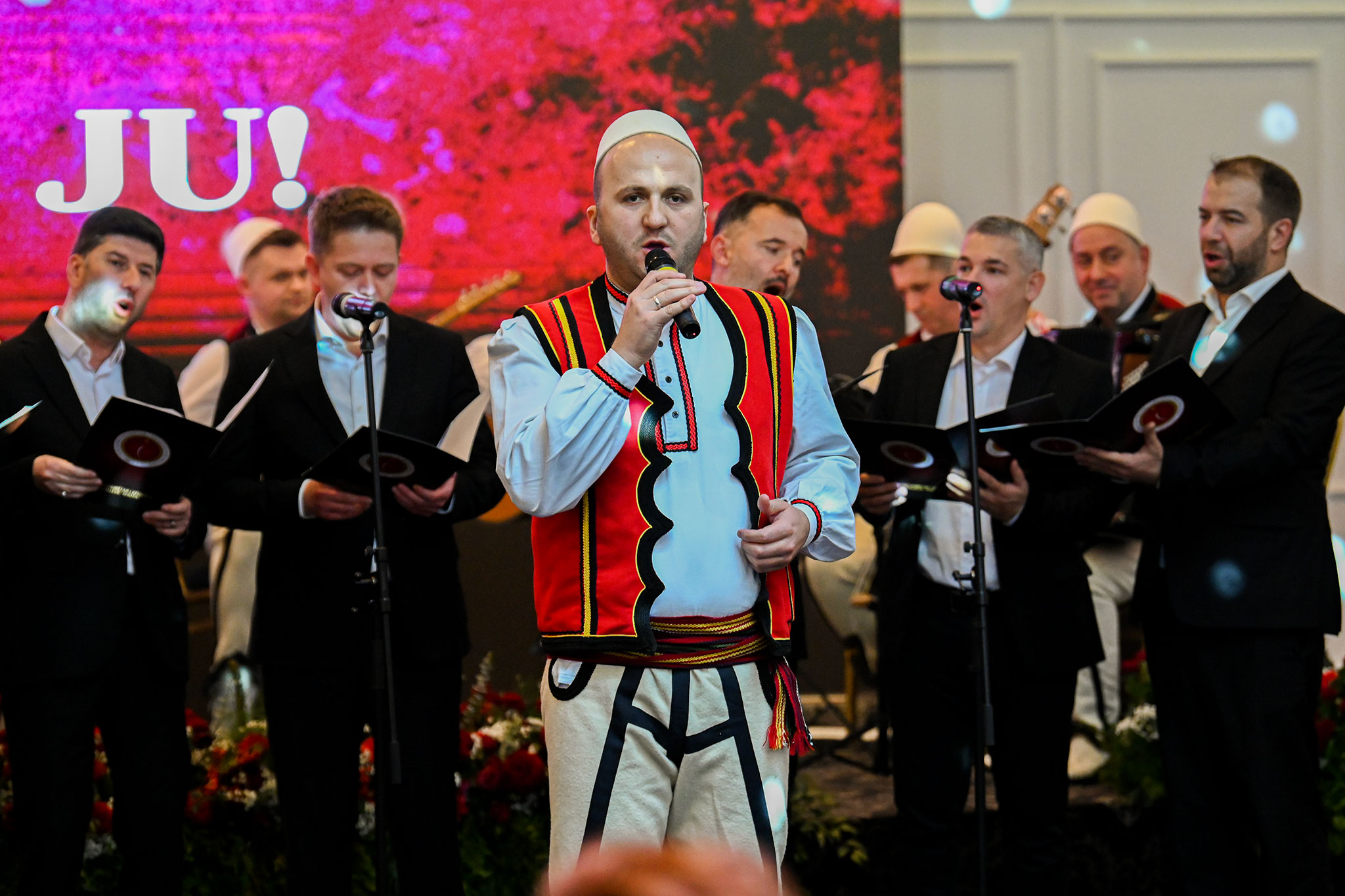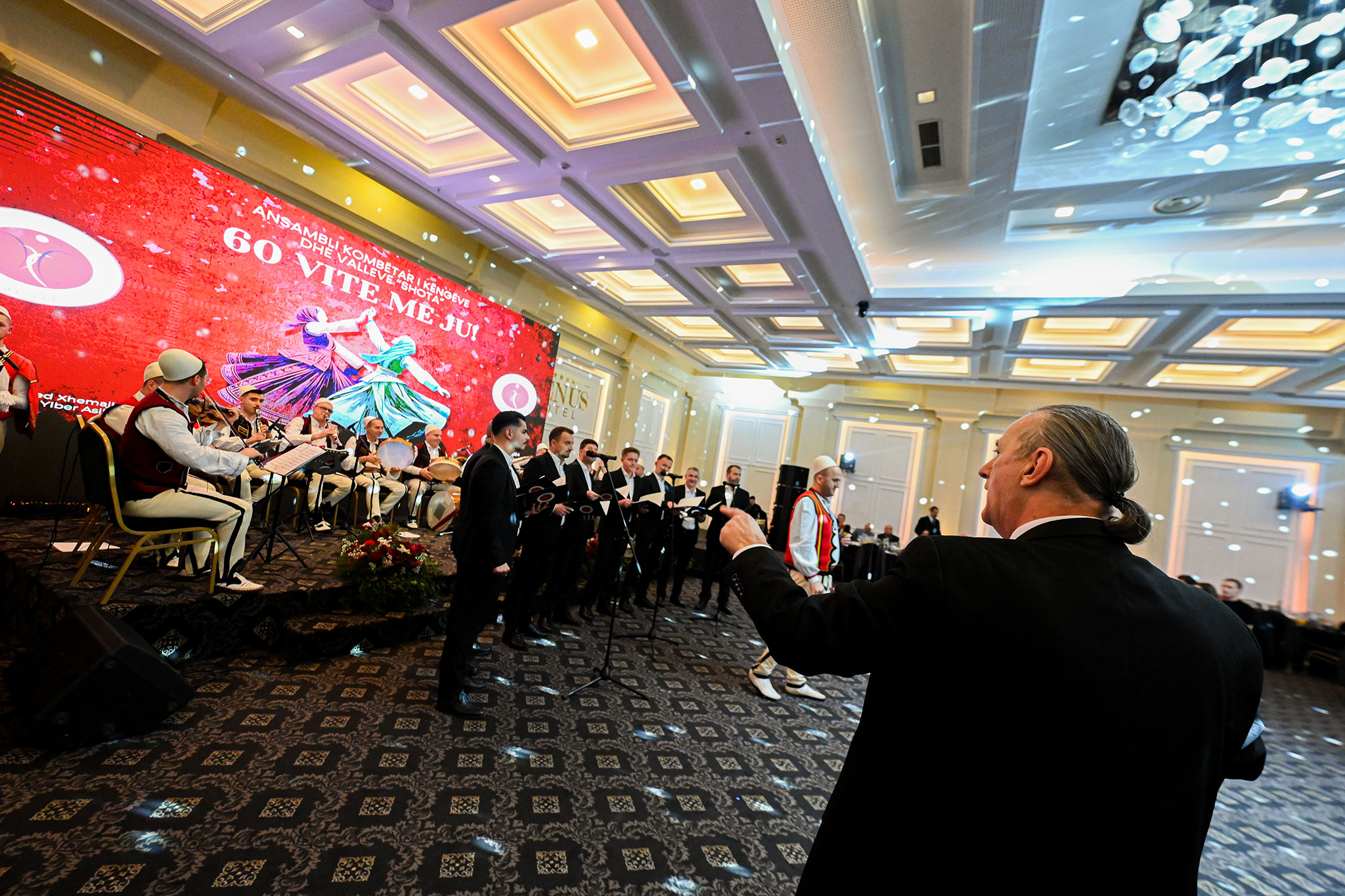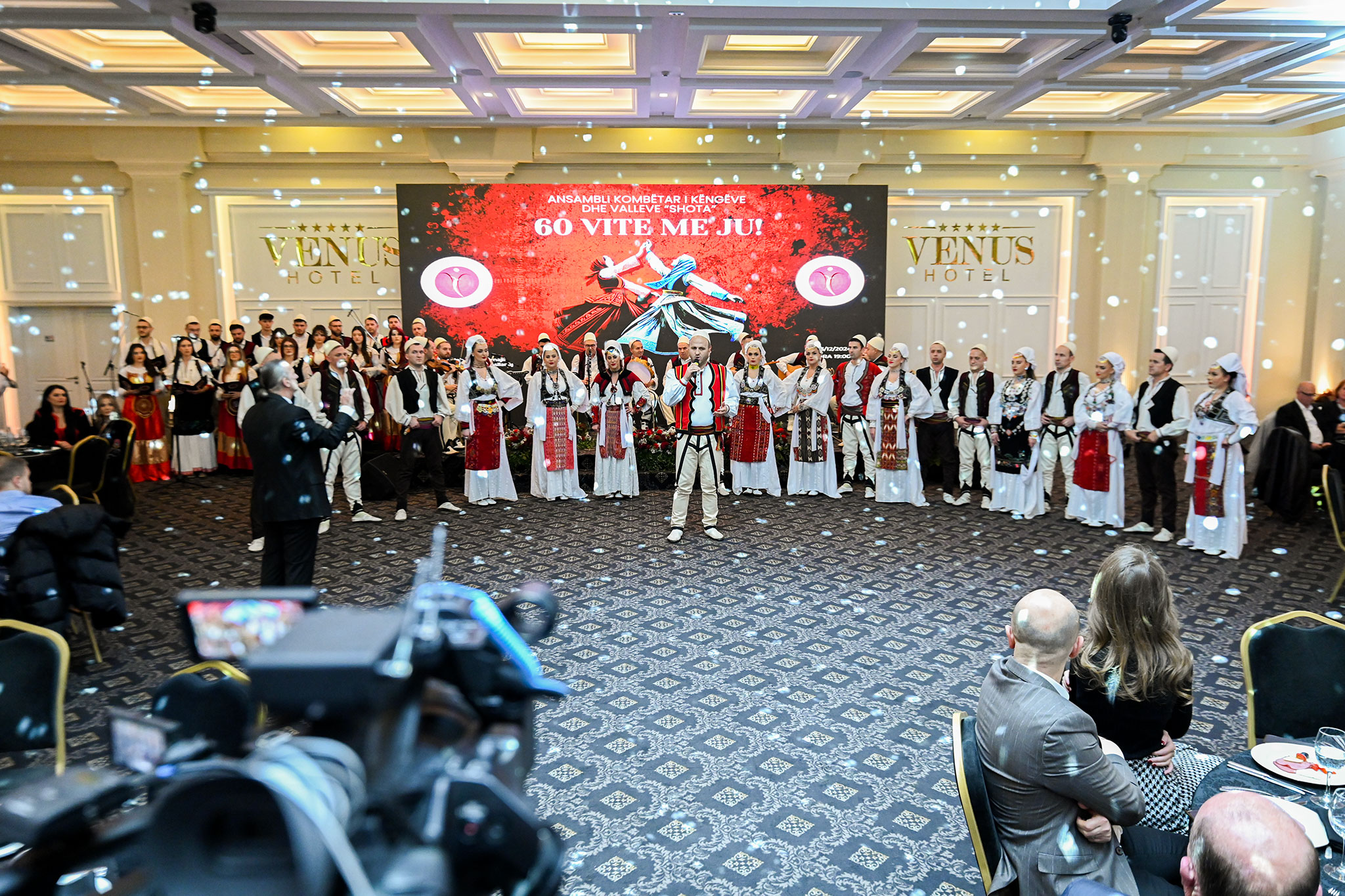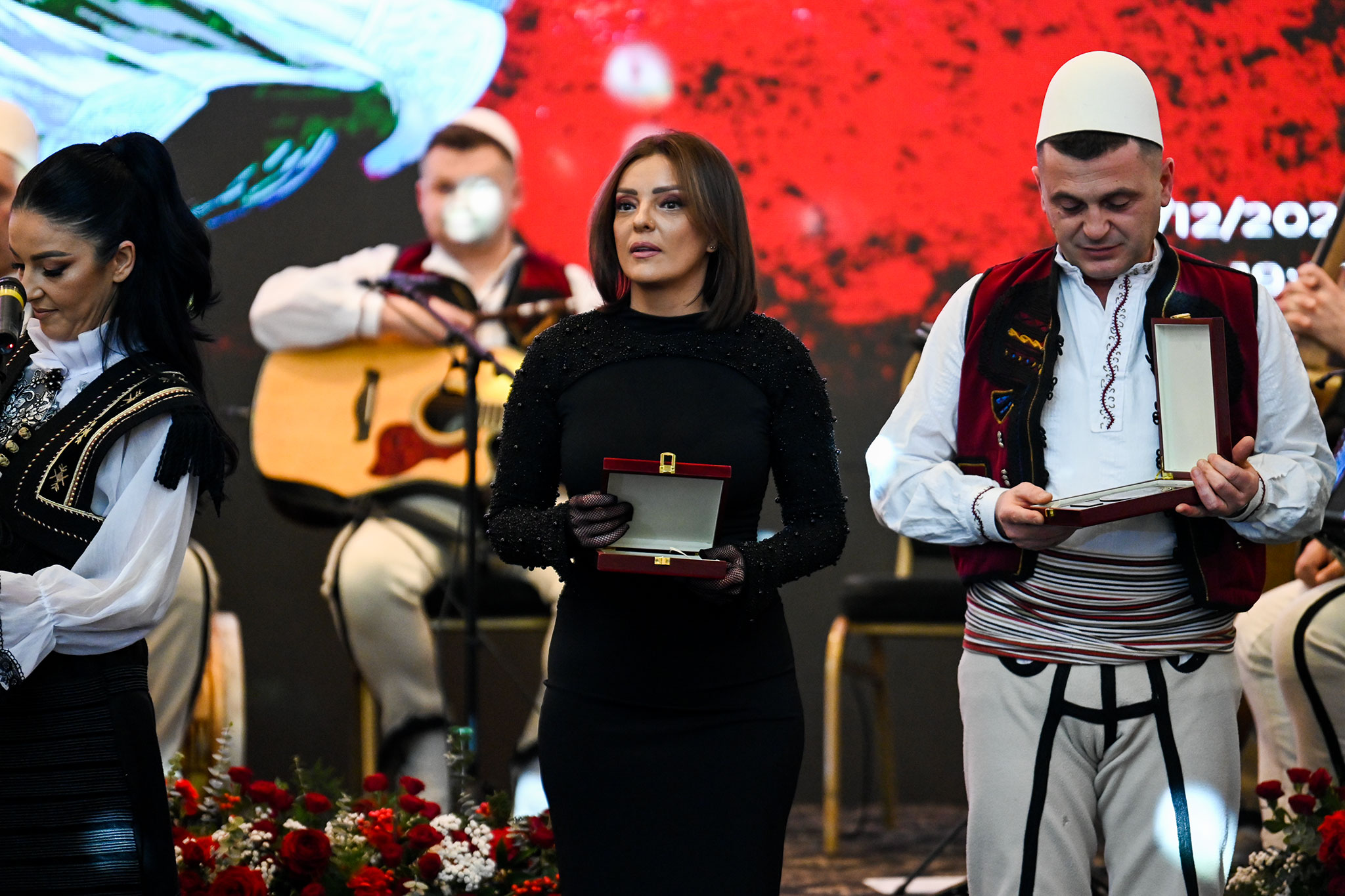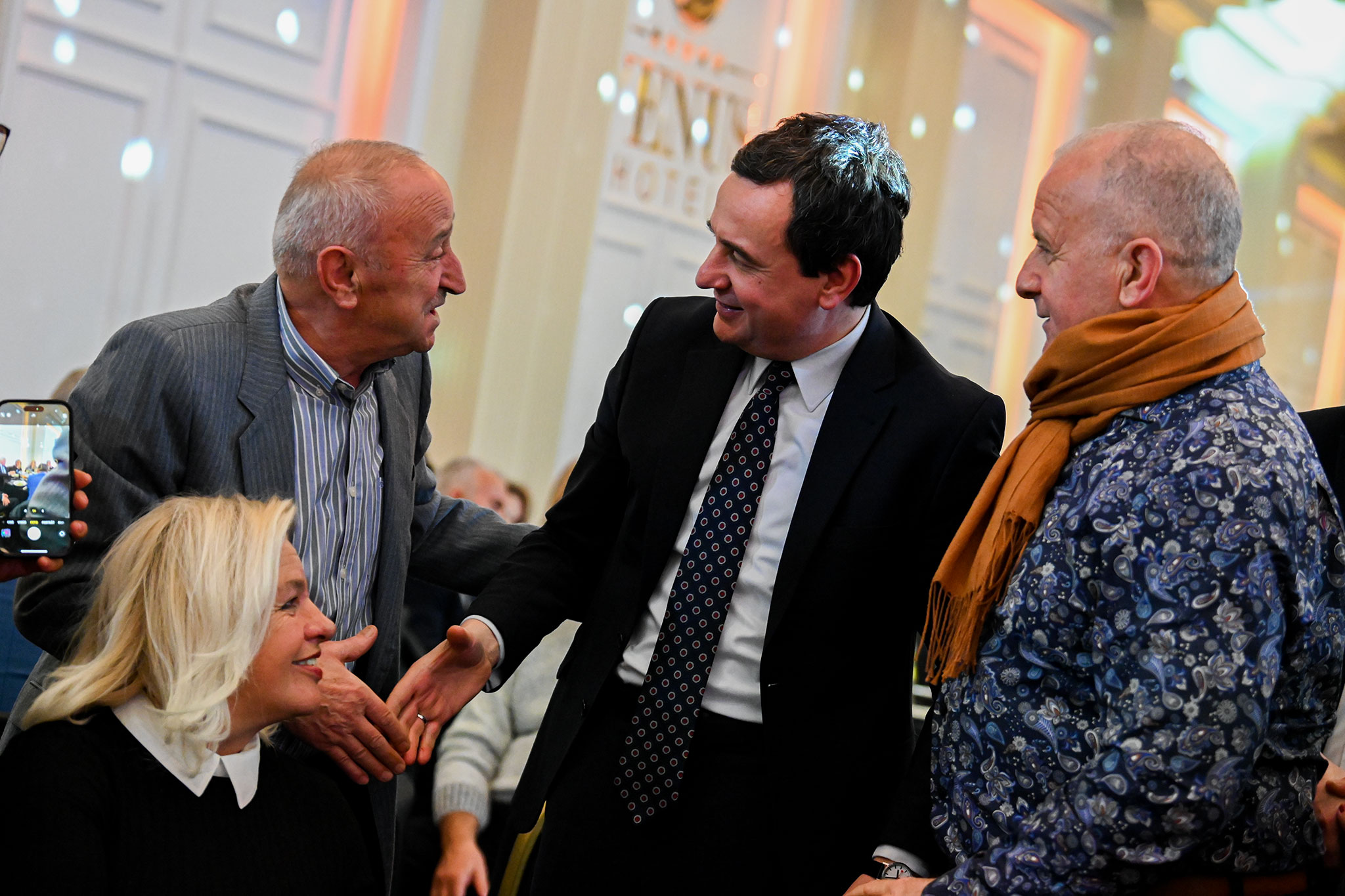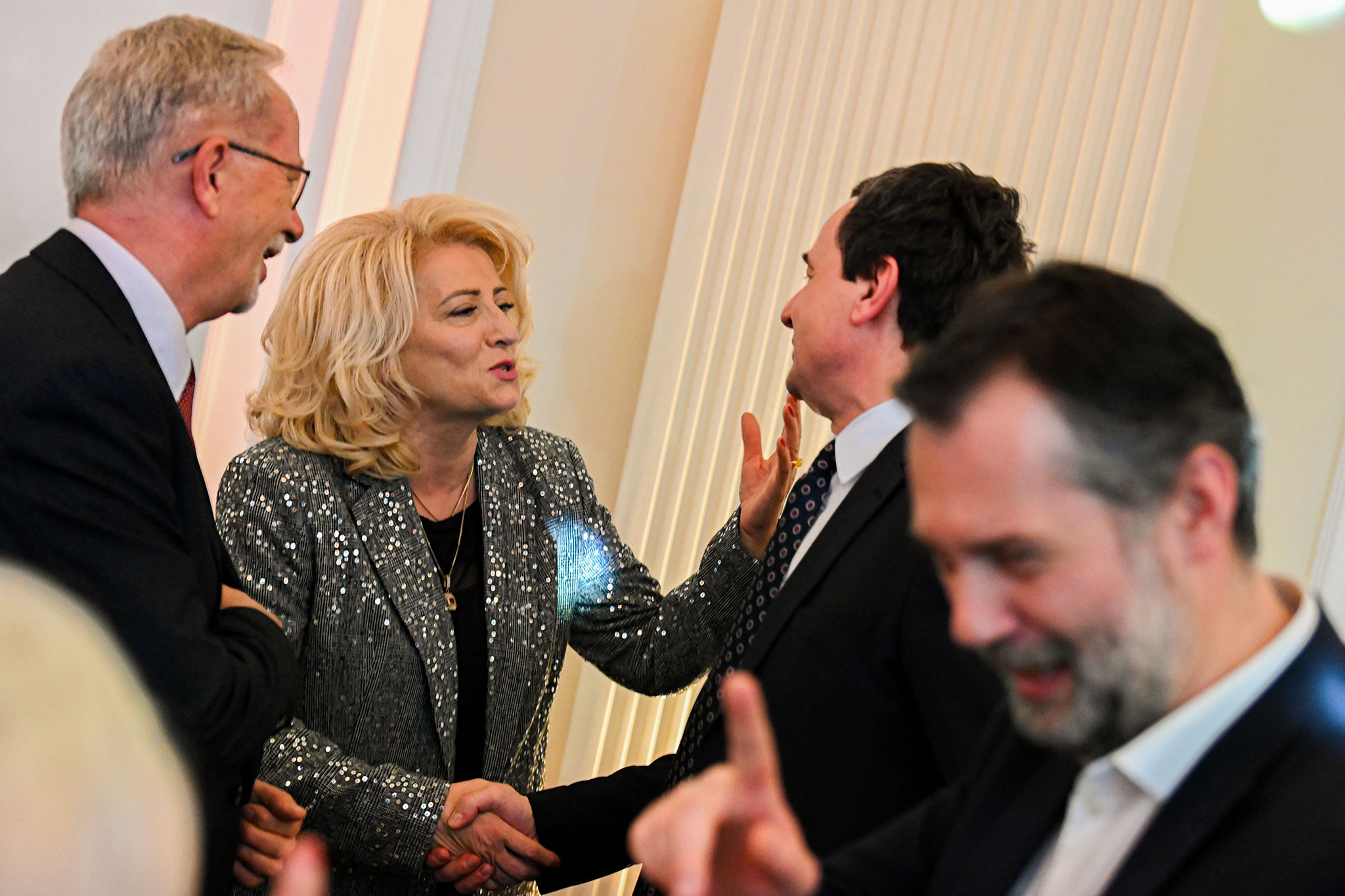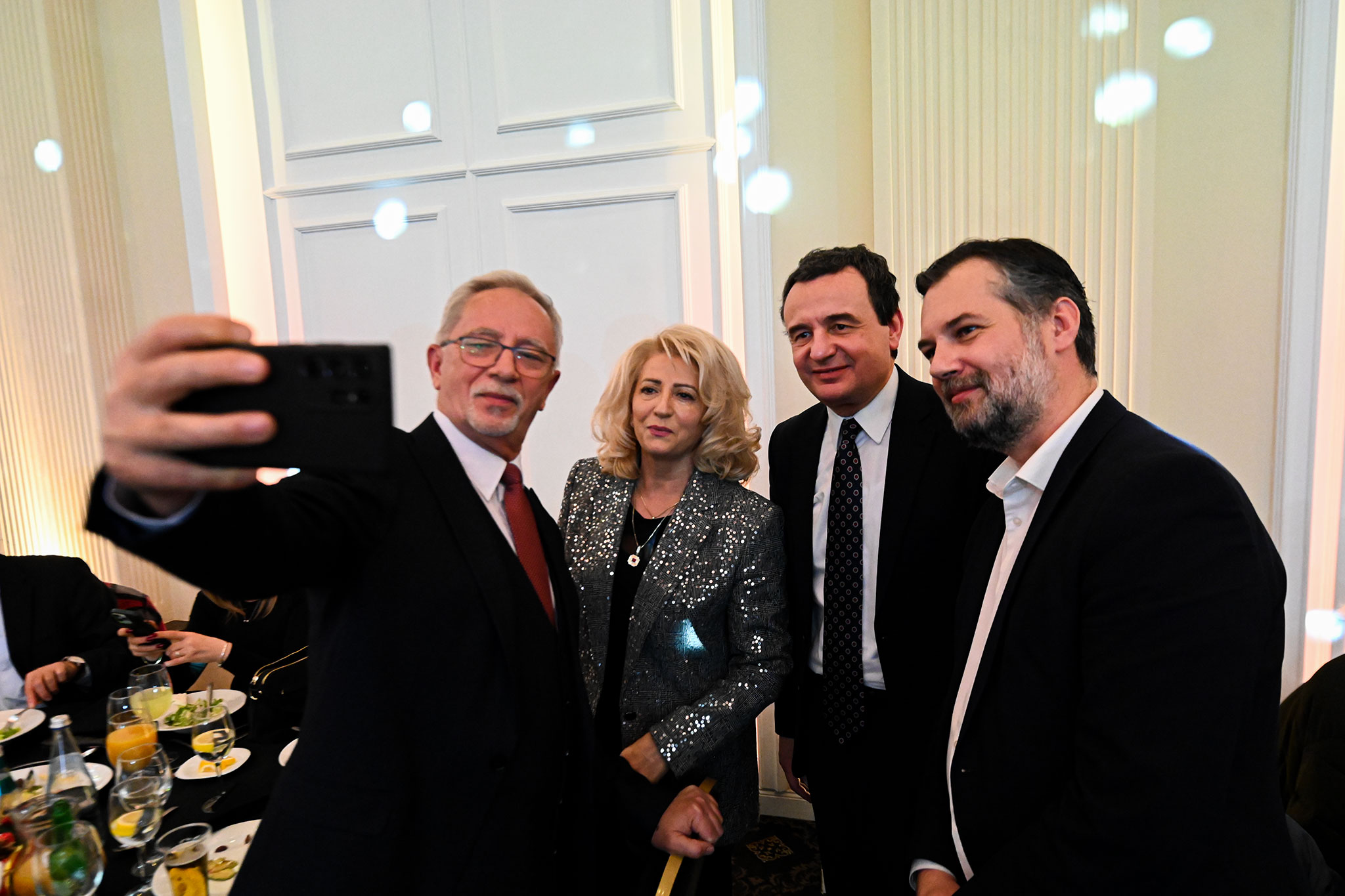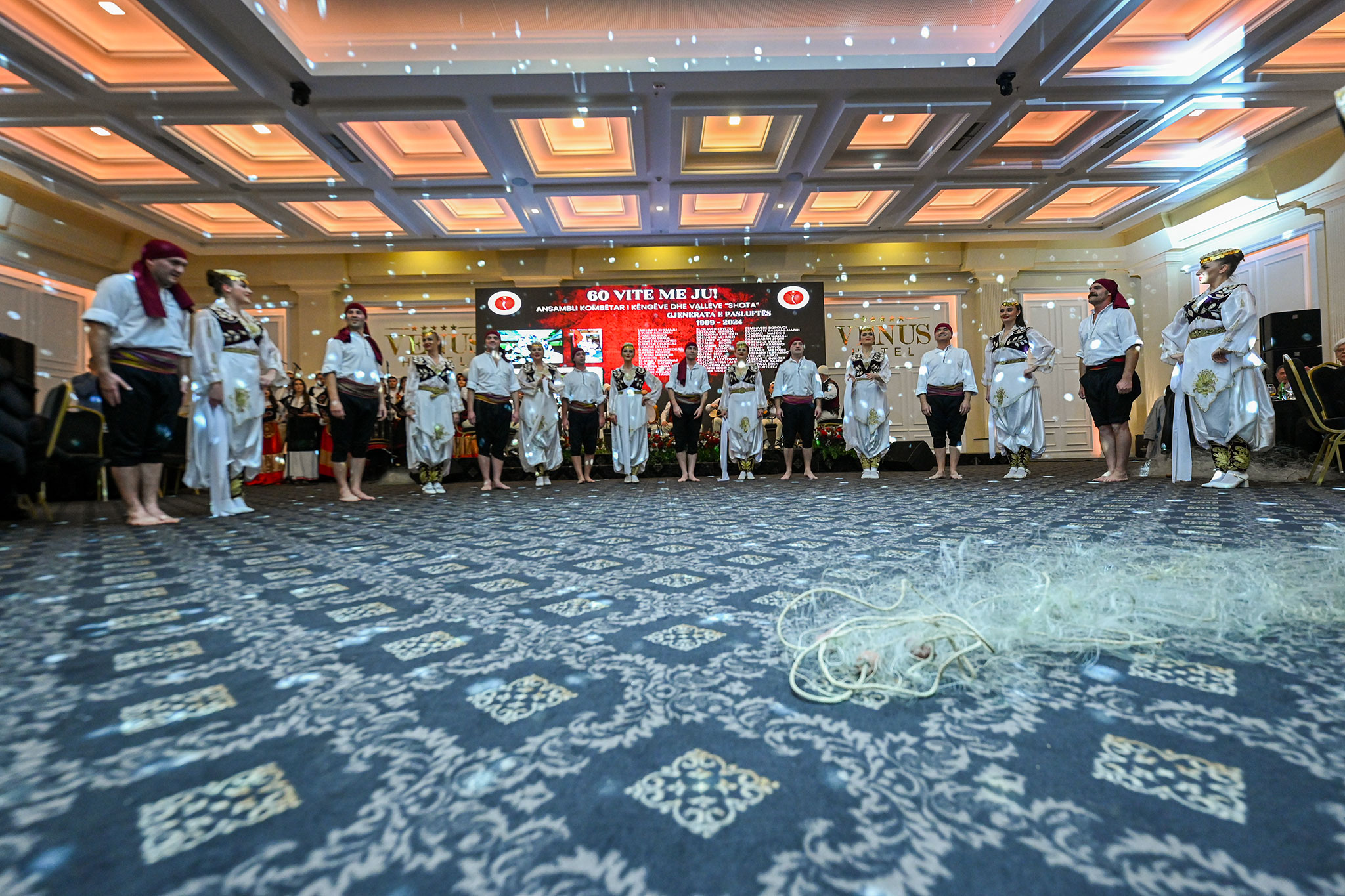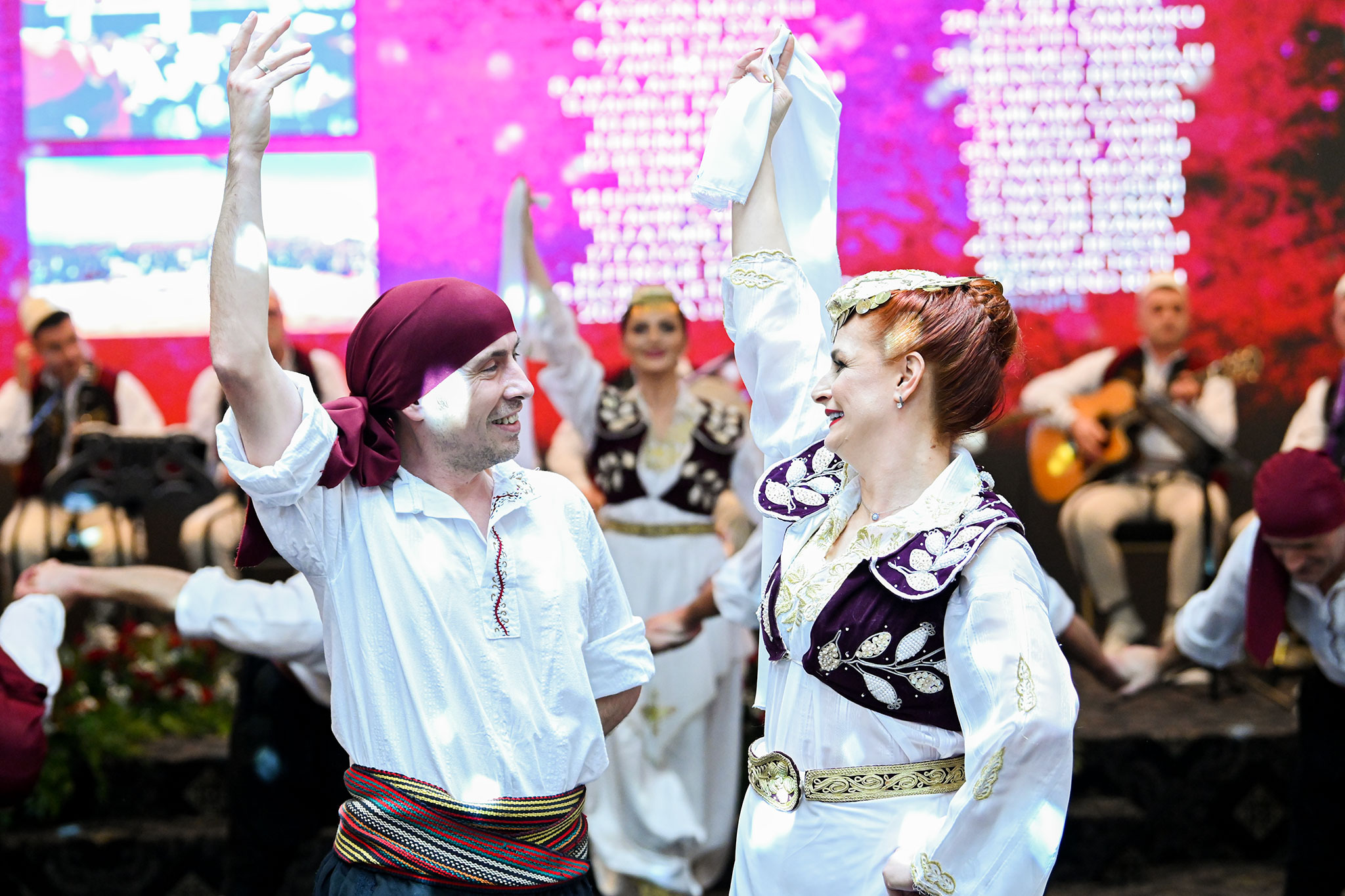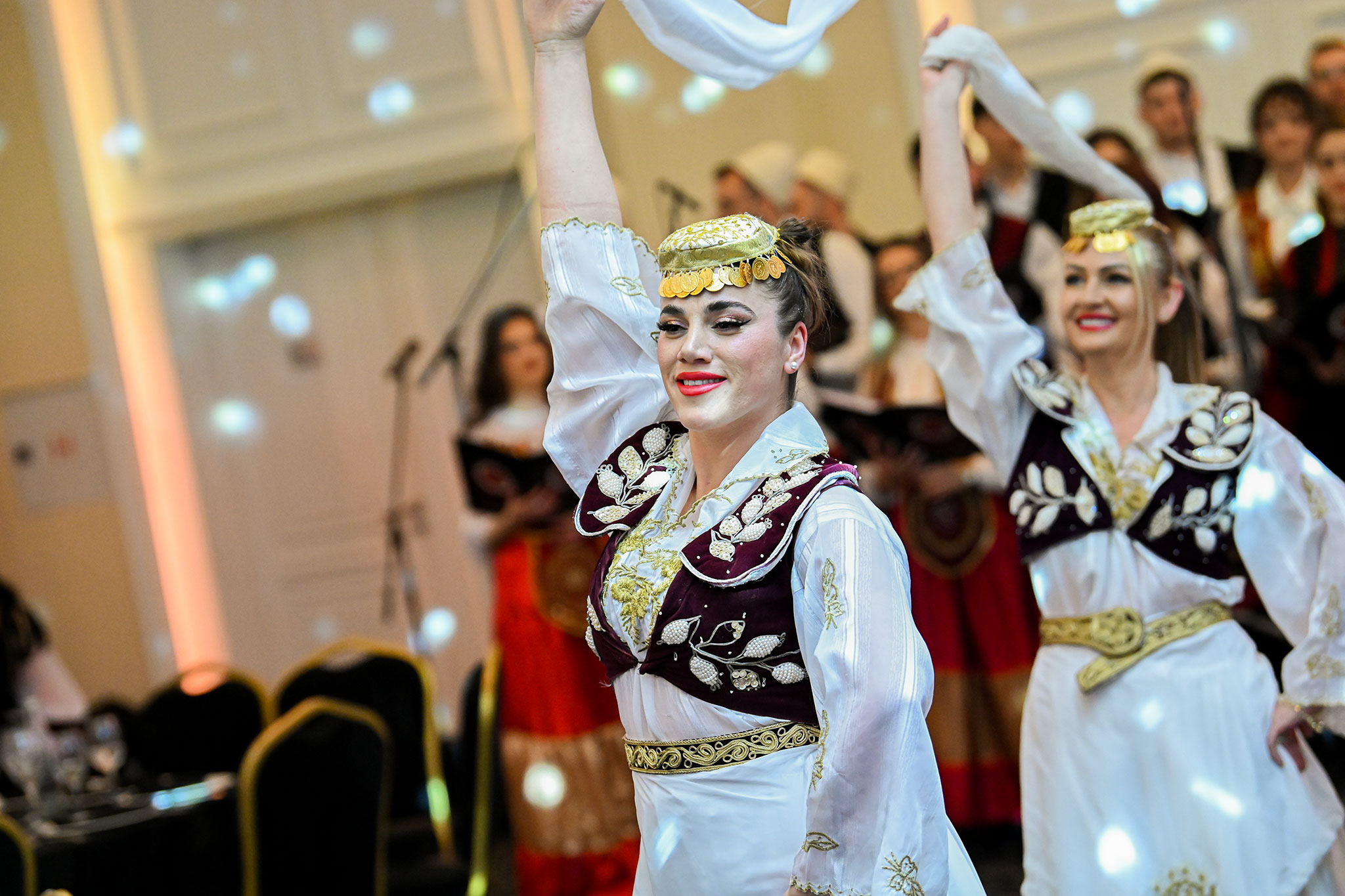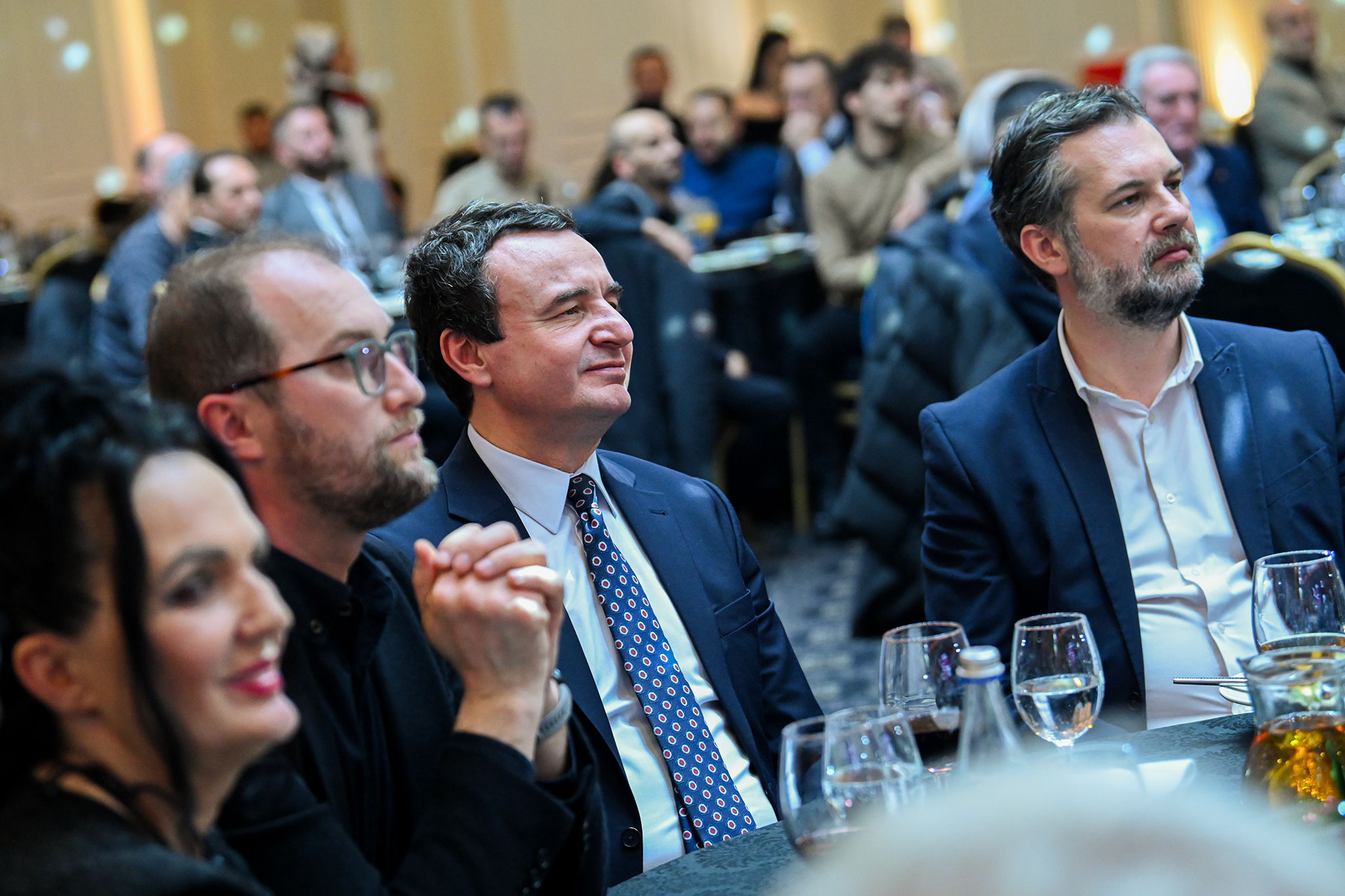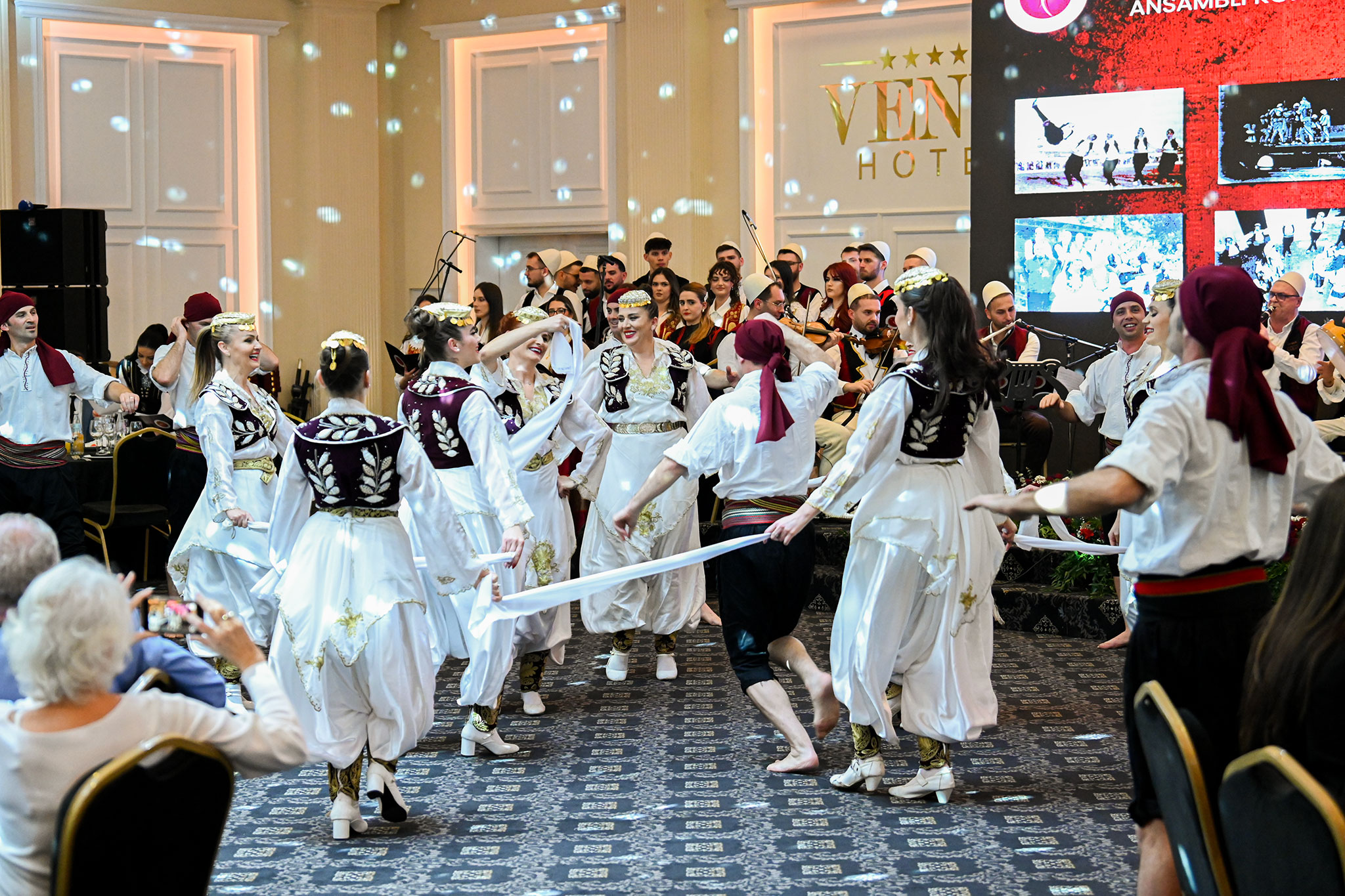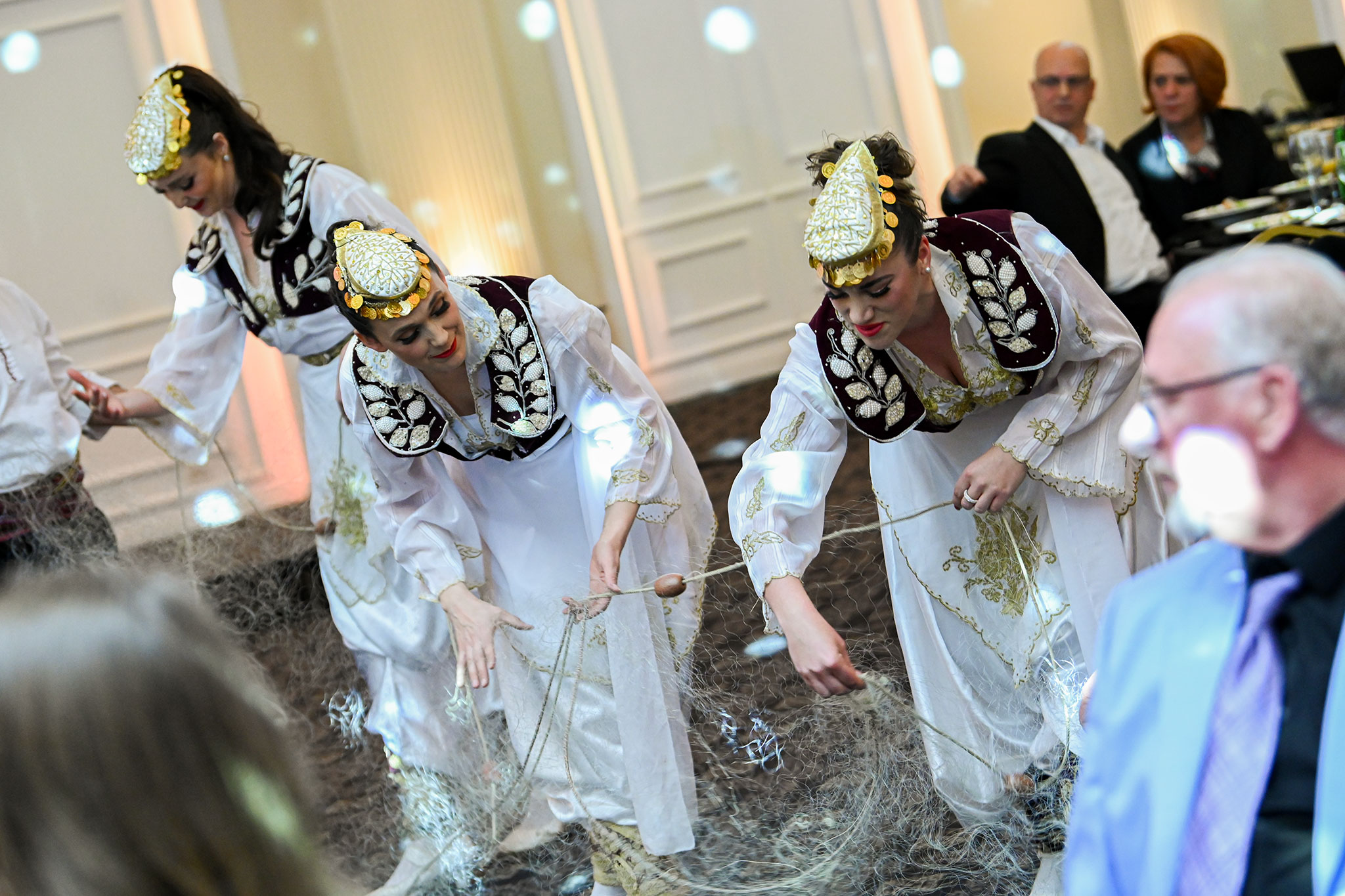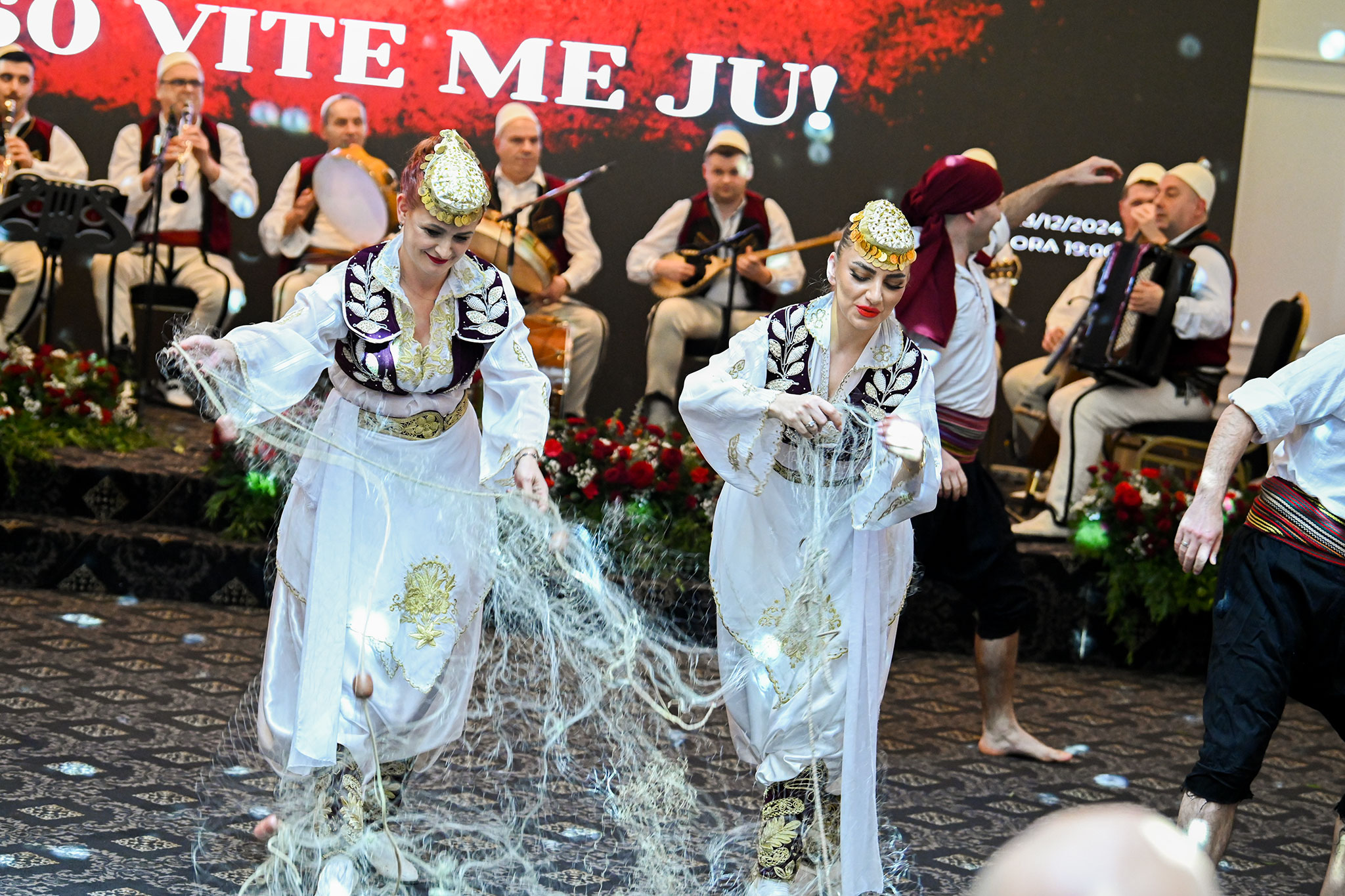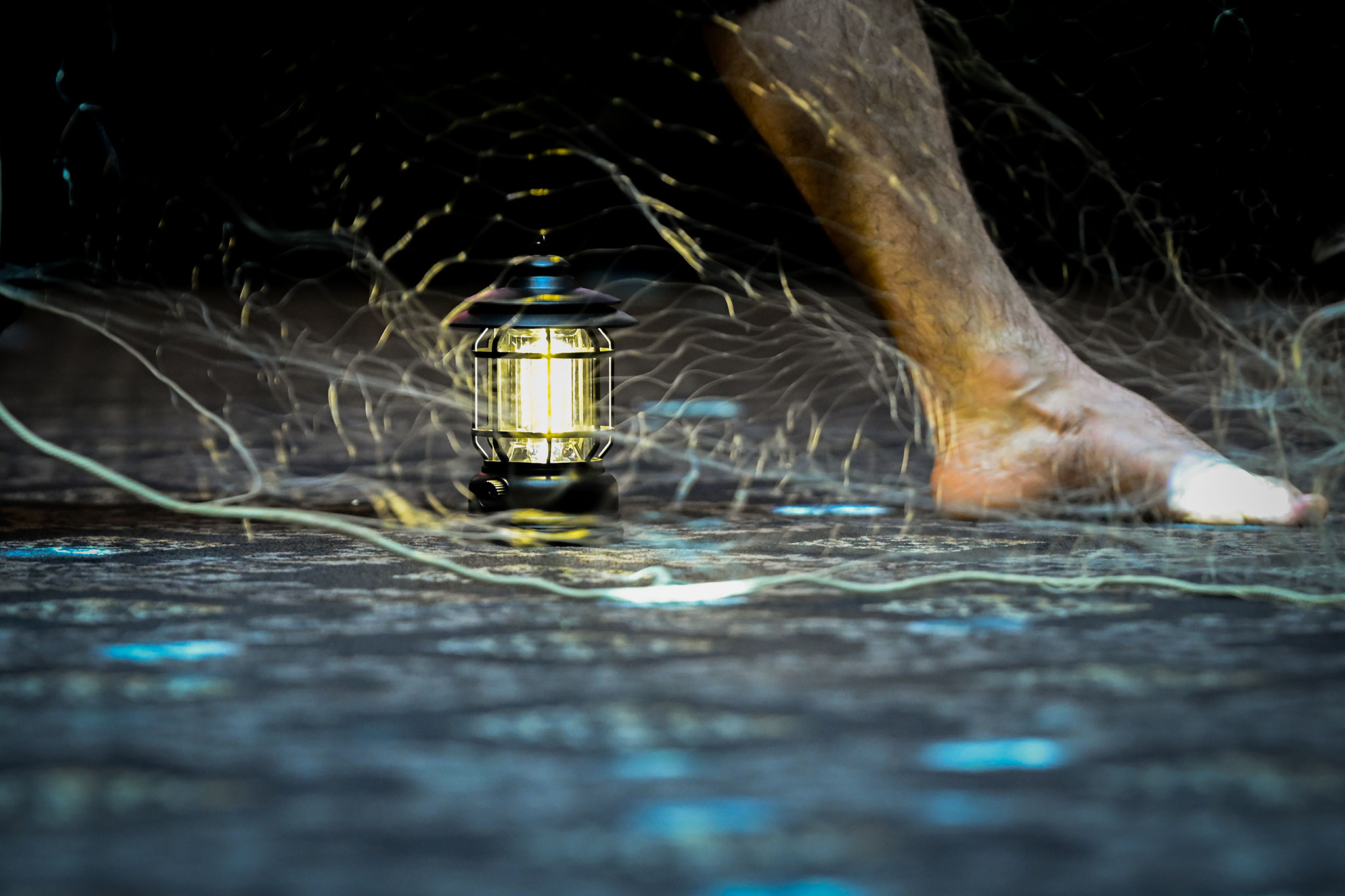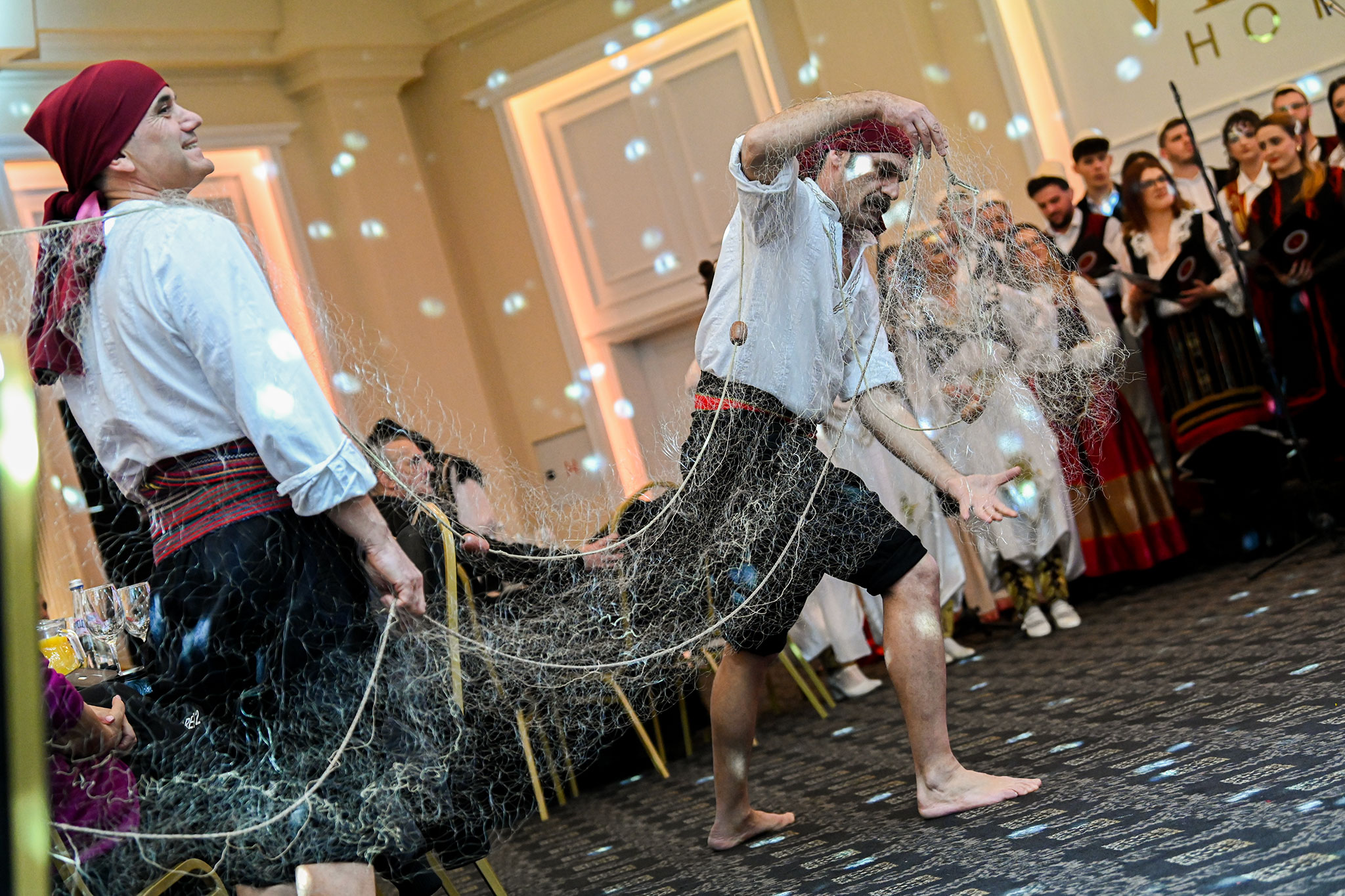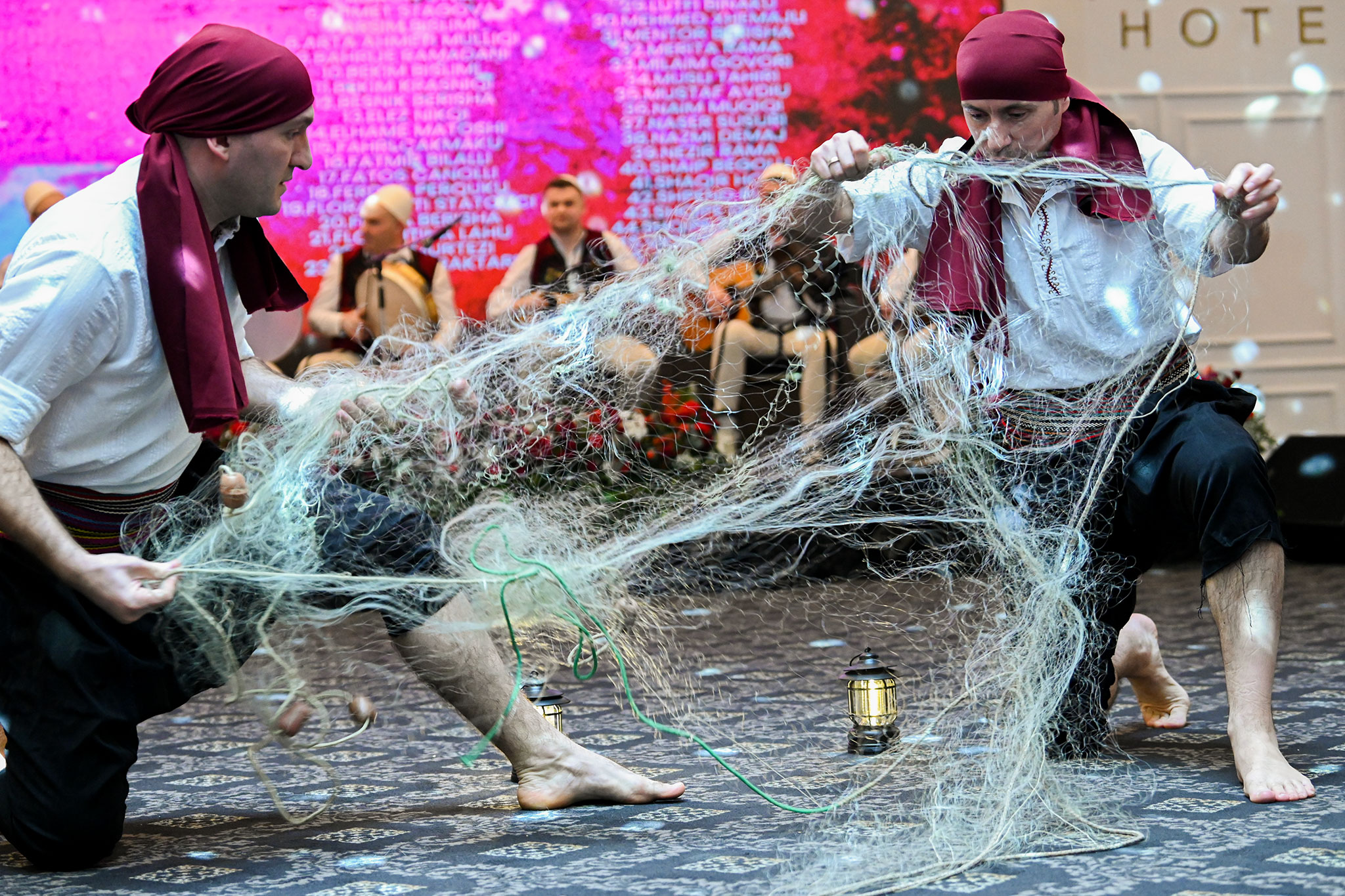Prishtina, 23 December 2024
The National Song and Dance Ensemble “Shota” marked the 60th anniversary of its founding as a professional ensemble. The Prime Minister of the Republic of Kosovo, Albin Kurti, was invited to this event.
Considered as one of our precious treasures, the “Shota” Ensemble has touched the hearts of audiences in every corner of the world, which began as an amateur ensemble in 1948 and took off in 1964 when it became a professional ensemble, opening a new era for our national art and traditions.
On this occasion, the Prime Minister recalled the year 1984, when this ensemble, together with Nexhmije Pagarusha, represented our culture at the opening of the Winter Olympic Games in Sarajevo, as well as the years 1985 and 1986, when they triumphed at the international festivals in Sidmouth and Dijon.
“Even in the most difficult periods, like in the 1990s, when Kosovo lived under the Apartheid regime of Serbia, “Shota” did not stop. Thanks to the volunteer work of its members, they kept our art and traditions alive, giving concerts in Kosovo, Albania, North Macedonia, Switzerland, Turkey, France and many other countries. On 15 September 1999, they gave their first post-war concert at the National Theater, a symbol of our cultural and national revival and continuity. Today, after 60 years as a professional ensemble, they count over 7,500 concerts and presentations and a series of international awards, including their latest triumph in Spain in 2024. “Today it is more than necessary to stop and thank all those who were there at the beginning of this great ensemble,” Prime Minister Kurti said in his speech.
Among the first members of the ensemble are Hylkie Sadiku, Marcel Tupeci, Ramadan Ramadani, Hazbie Kovaçi, Ylfete Raça, Shkëlzen Zhubi, Haki Shkreli, Bashkim Loshi and many others. Thanks to them and their dedication, “Shota” took shape as a cultural force that makes us proud to this day. The Prime Minister expressed special appreciation for Nahire Surroi and Sevime Gjinali, who have led the ensemble with unparalleled dedication and passion, as an example of the power of art and leadership in the service of our national culture.
Over the years, the ensemble has also collaborated with the greatest composers, artists and researchers of our culture, such as Rexho Mulliqi, Fahri Beqiri, Zeqiria Ballata, Severin Kajtazi, etc., and with ethnomusicologists such as Lorenc Antoni, Rexhep Munishi and Bahtir Sheholli, choreographers Xhemali Berisha, Haki Mulliqi, Sylejmon Shala, Panajot Kanaqi, Gëzim Kaceli, Besim Jazegjiu and many others.
In conclusion, the Prime Minister, in his speech, addressing the artists of the “Shota” Ensemble, said that they not only preserve our heritage, but also live it for us to experience, as he thanked them for their dedication and love for art and culture, and wished them the 60th anniversary of their founding along with new successes in the years and decades to come.
Prime Minister Kurti’s full speech:
Honorable Minister of Culture, Youth and Sports, Mr. Hajrulla Çeku,
Honorable former Ministers of Culture, Youth and Sports of our Republic,
The Honorable Director of the National Song and Dance Ensemble “Shota”, Mehmet Xhemajli,
Honorable leaders and former leaders of the Council of the National Ensemble “Shota”,
Dear artists and friends of culture,
Honored guests,
Ladies and gentleman,
Sisters and brothers,
Tonight we are here to honor one of our most precious treasures – the National Song and Dance Ensemble “Shota”. Their story begins in 1948 as an amateur ensemble and takes off in 1964 when it becomes a professional ensemble, opening a new era for our national art and traditions. By taking elements of spiritual and cultural heritage and putting them on stage, “Shota” has touched the hearts of audiences in every corner of the world.
We proudly remember 1984, when, together with Nexhmije Pagarusha, they represented our culture at the opening of the Winter Olympic Games in Sarajevo, or 1985 and 1986, when they triumphed at the international festivals in Sidmouth and Dijon. Watching their performances, I often stop and think: Is this Besnik Graiçevci or is it Luigj Gurakuqi or Isa Boletini himself, coming back to life through his movements? Or maybe it is Rexhep Çeliku reincarnated in the dance of generations of our national dancers. And when I see Suzana Drenica and Arta Mulliqi on stage, it seems to me as if I am facing Illyrian princesses who carry the charm and nobility of our ancestors.
Then we see the groups of dancers, whose synchronicity reminds us of the old times celebrations, where every movement expressed joy, respect, and unity. Then there are the musicians, those masters of sound, who with the çifteli, the flute, and lahuta bring us the melodies that have connected our people across countless generations through song. When I listen to them, sometimes it seems to me that they are not just “Shota” musicians, but ancient rhapsodes who bring back the past to us.
From the melody of Gent’s çiftelia to the harmony of the entire orchestra led by Fitim, they remind us that our culture is not only to be preserved, but to be lived and felt every day by each of us.
Honored guests,
“Even in the most difficult periods, like in the 1990s, when Kosovo lived under the Apartheid regime of Serbia, “Shota” did not stop. Thanks to the volunteer work of its members, they kept our art and traditions alive, giving concerts in Kosovo, Albania, North Macedonia, Switzerland, Turkey, France and many other countries. On 15 September 1999, they gave their first post-war concert at the National Theater, a symbol of our cultural and national revival and continuity.
Today, after 60 years as a professional ensemble, they count over 7,500 concerts and presentations and a series of international awards, including their latest triumph in Spain in 2024. “Today it is more than necessary to stop and thank all those who were there at the beginning of this great ensemble. Among the first members of the ensemble are Hylkie Sadiku, Marcel Tupeci, Ramadan Ramadani, Hazbie Kovaçi, Ylfete Raça, Shkëlzen Zhubi, Haki Shkreli, Bashkim Loshi and many others. Thanks to them and their dedication, “Shota” took shape as a cultural force that makes us proud to this day. It was the work and vision of these pioneers that laid the foundations of the ensemble, giving life to a living tradition that conveys our spirit and history on every stage where it is performed.
The ensemble also collaborated with the greatest composers, artists, and scholars of our culture, and tonight we must remember together Rexho Mulliq, Fahri Beqiri, Zeqiria Ballata, Severin Kajtazi, etc. And let us also remember the ethnomusicologists Lorenc Antoni, Rexhep Munishi and Bahtir Sheholli, the choreographers Xhemali Berisha, Haki Mulliqi, Sylejmon Shala, Panajot Kanaqi, Gëzim Kaceli, Besim Jazegjiu and many others. I also want to thank the distinguished directors of this ensemble who, through their work and vision, have led “Shota” to success. Special thanks also to Nahire Surroi and Sevime Gjinali, who have led the ensemble with unparalleled dedication and passion. They are an example of the power of art and leadership in the service of our national culture.
Dear artists of “Shota”,
You don’t just preserve our heritage – you live it for us to experience, inspire it, and carry it into the future for children yet to be born.
We thank you for your dedication and love for our art and culture.
Congratulations on your 60th anniversary as a professional ensemble and new successes in the years and decades to come!
Thank you.

